TRANSIT ZWICKAU -
IT'S FURTHER HOME THAN TO THE MOON
International documentary theatre
Zwickau can be told as a success story. The textile industry, mining and vehicle construction are the industrial backbone of the region. The city of Zwickau has seen world wars and states come and go. However, some chapters of this history are not heard or have not even been documented. Even more so: the import and export of goods repeatedly brought new people from all over the world to Zwickau:
Not only cotton was once imported, but also people, exhibited and gazed at in ‘Völkerschauen’. During the Third Reich, forced labourers in the Auto Union factories produced military vehicles that were used against their own people. From 1967, contract workers from socialist brother countries such as Mozambique and Vietnam were recruited by the GDR to combat the labour shortage. Some have long since returned to their home countries, while others continue to shape the region to this day - often completely unseen by the majority of a closed society.
The Plauen-Zwickau Theatre and Paradise Garden bring these Zwickau perspectives from over 150 years of labour migration to life: the specially developed play combines music elements from the choir and a band, with a Vietnamese-Mozambican dance duo and a lively acting ensemble of Zwickau citizens as well as professional actors. Research and the personal experiences of contemporary witnesses merge into a powerful documentation of Zwickau's diverse identities.
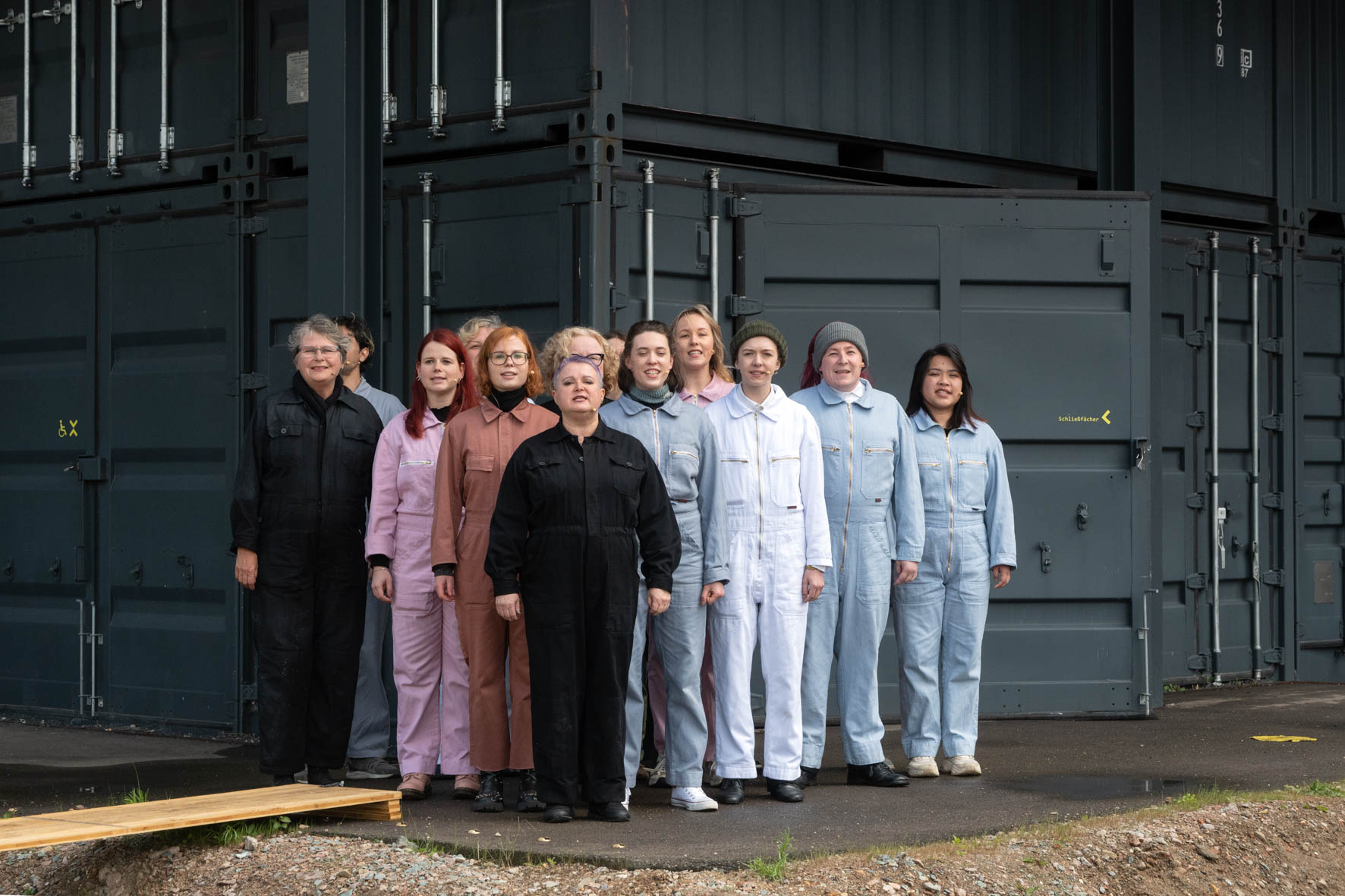
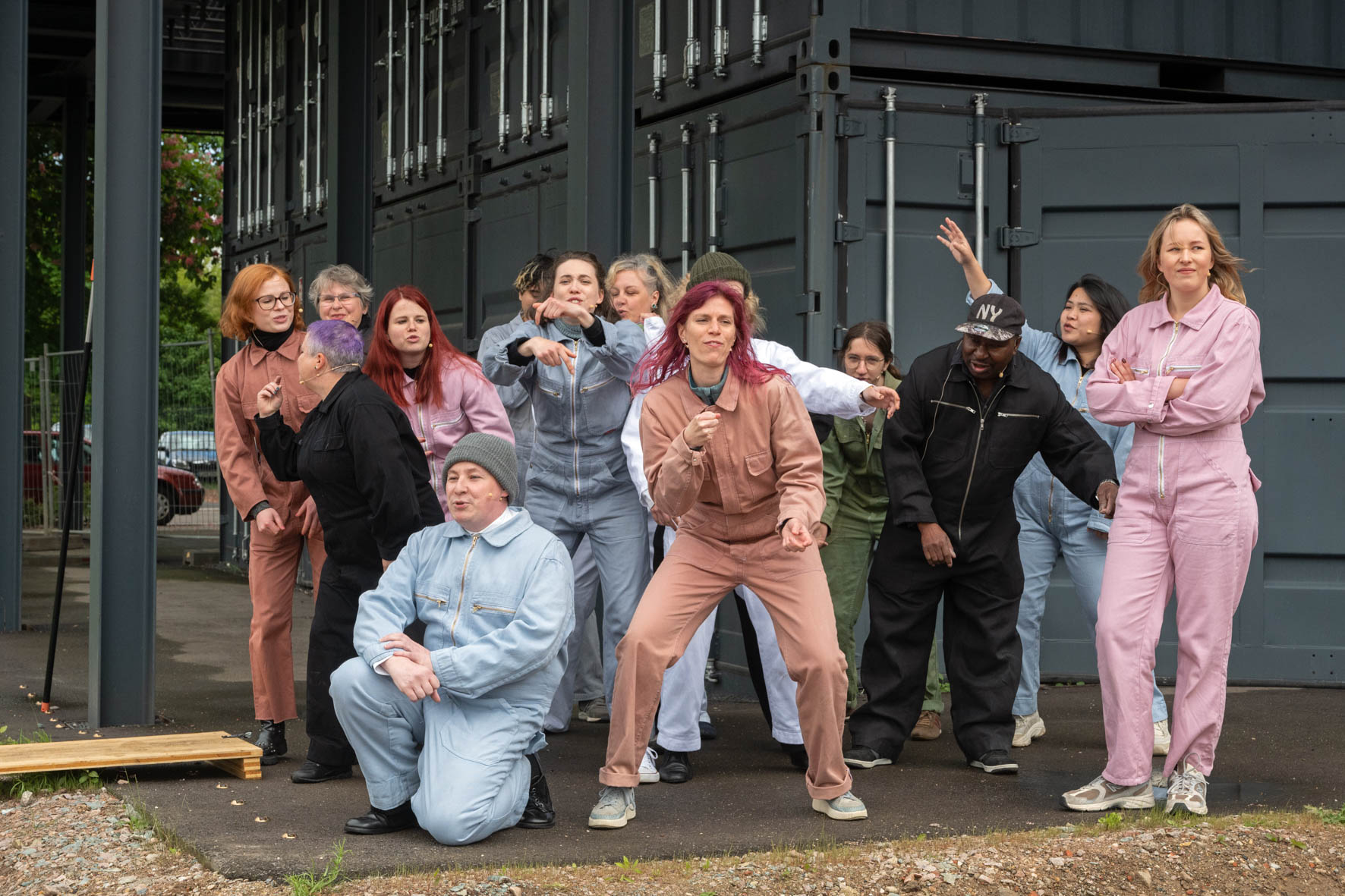
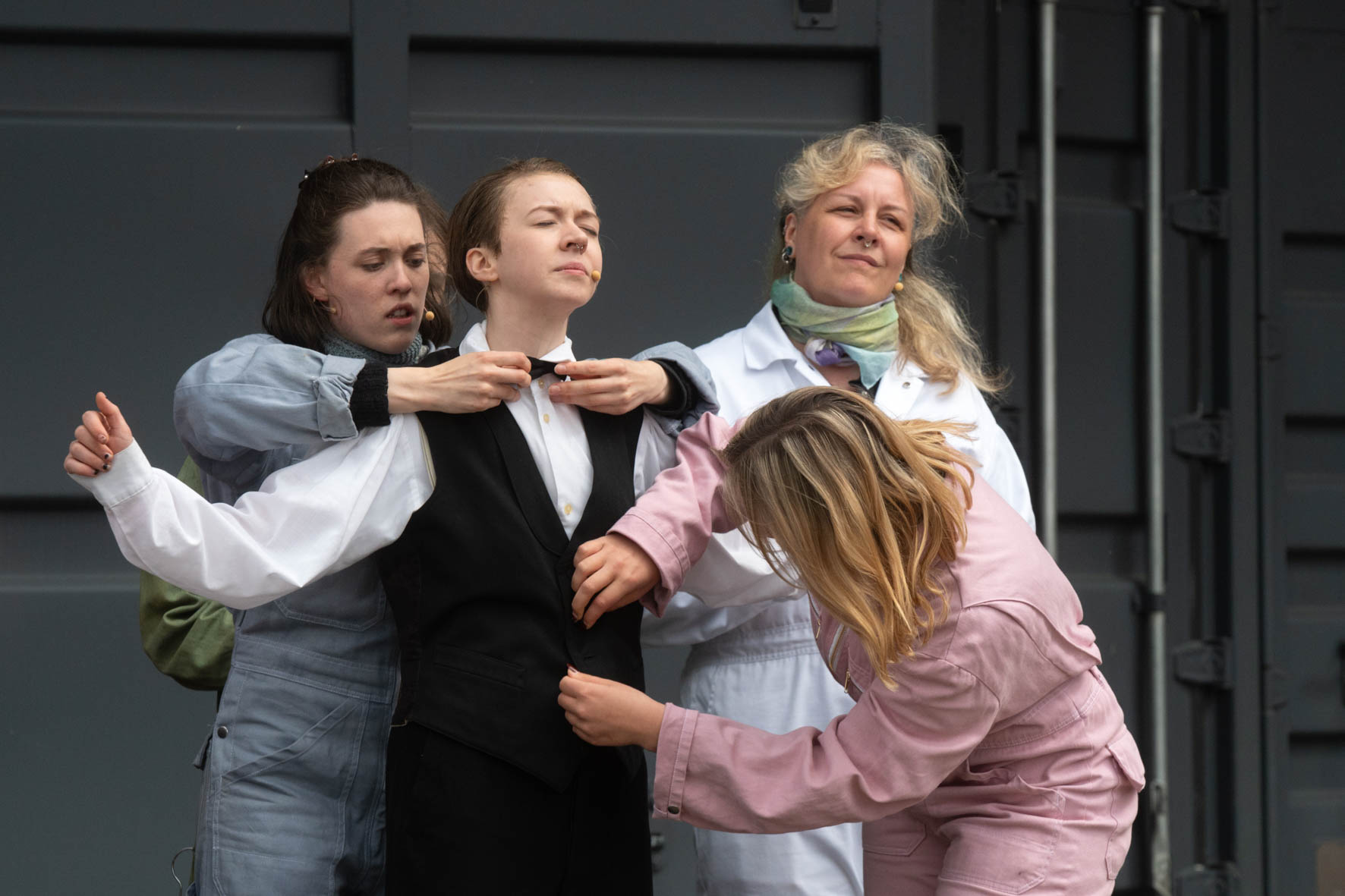

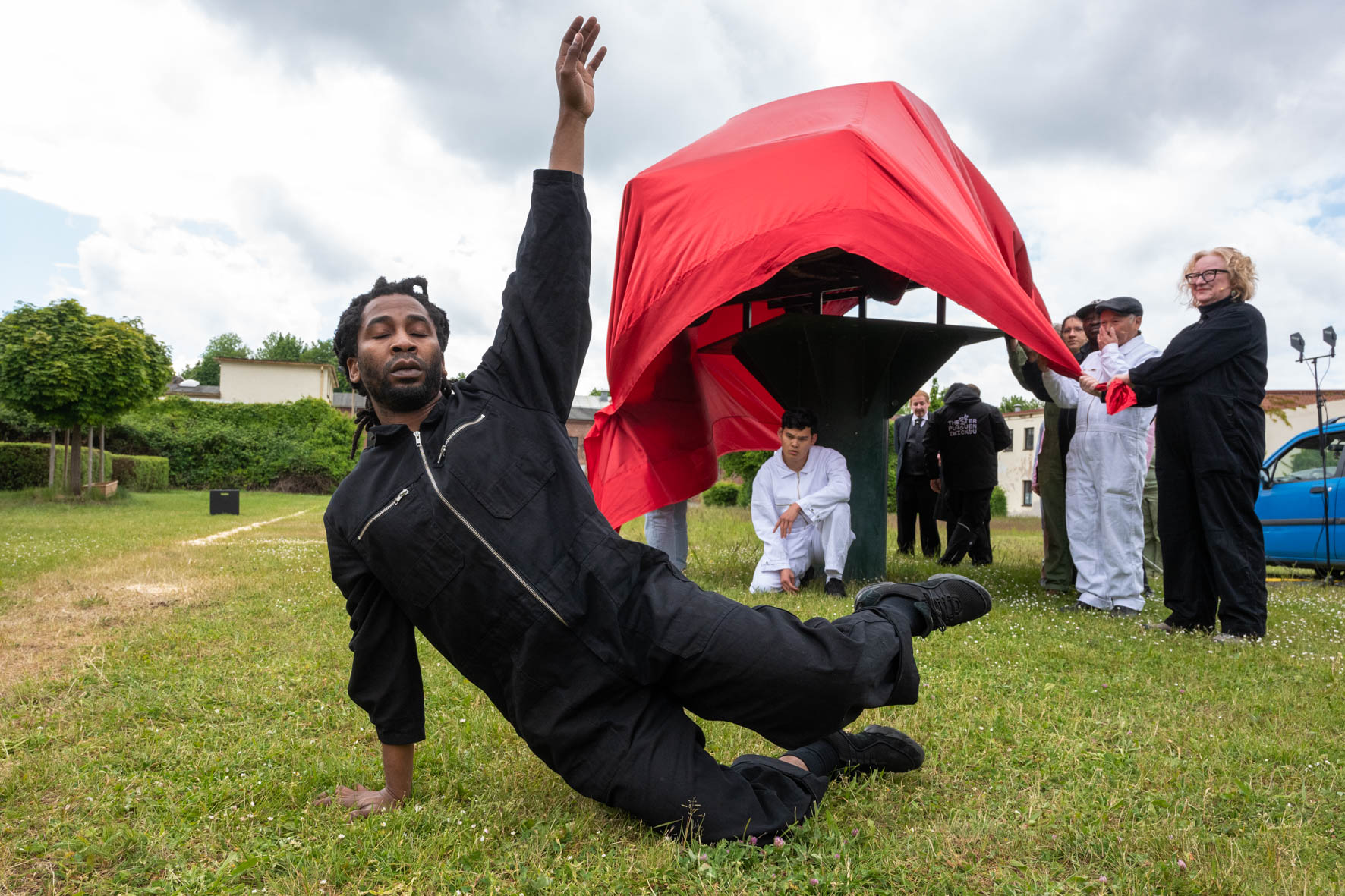
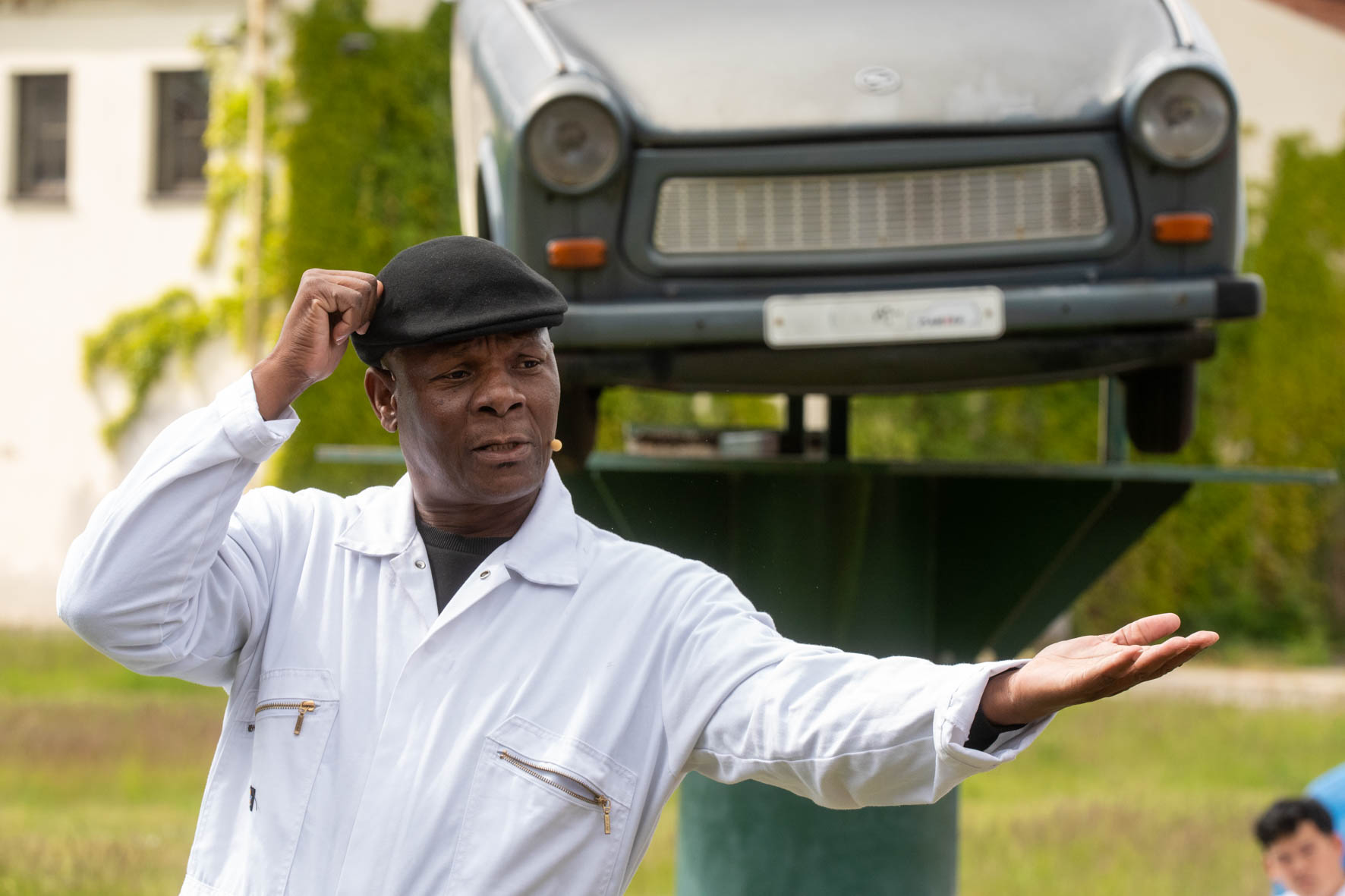


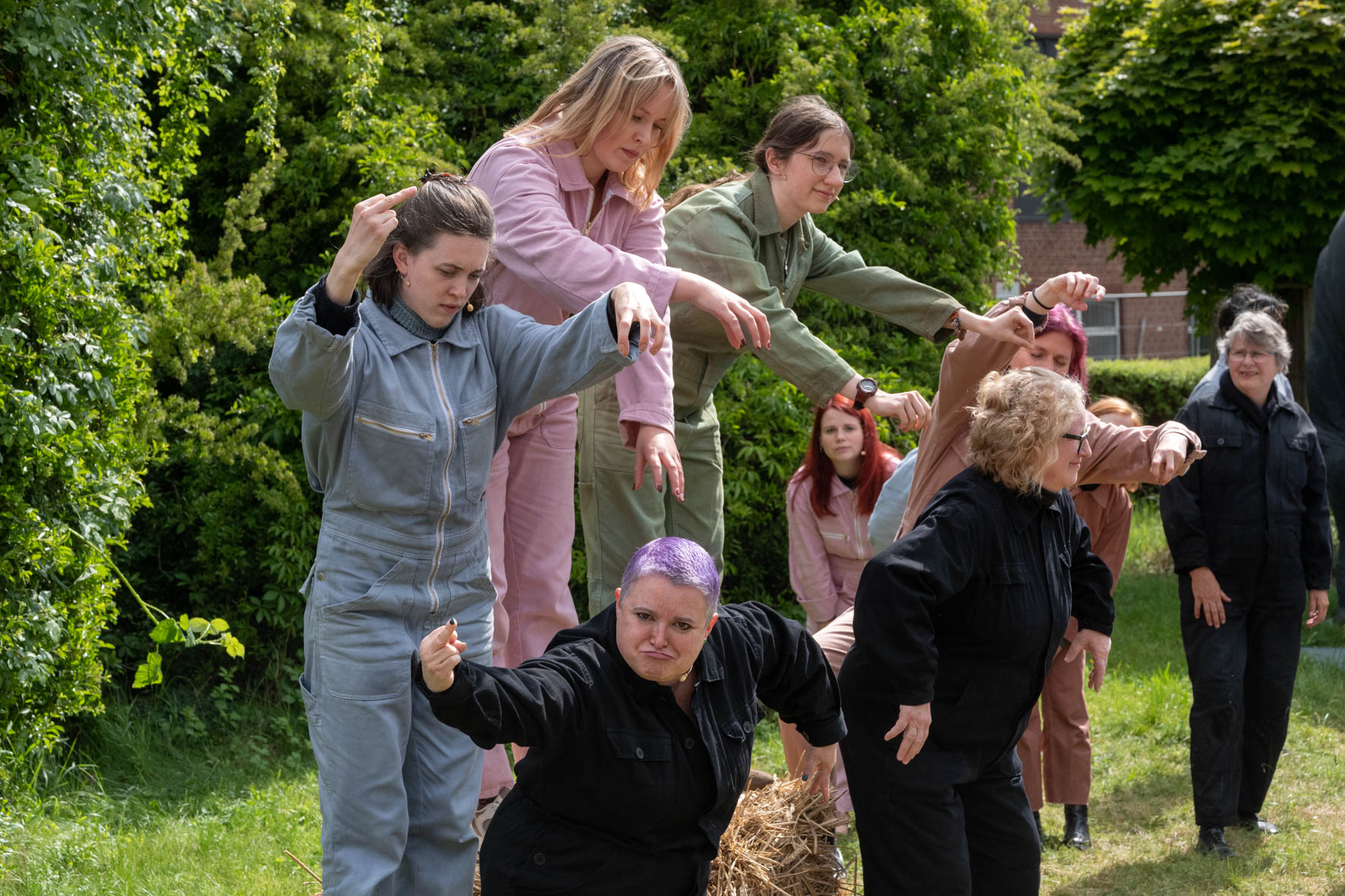
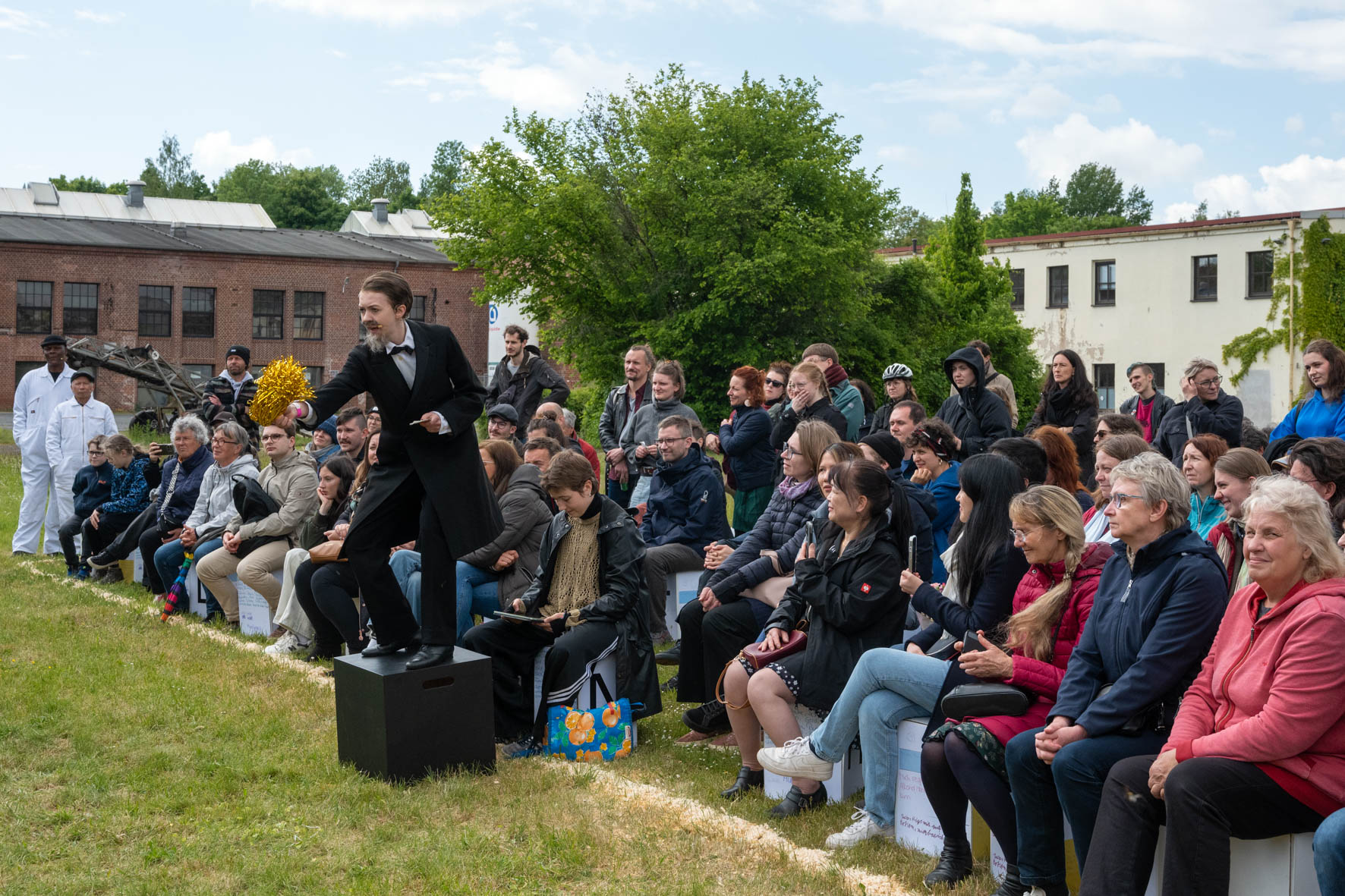
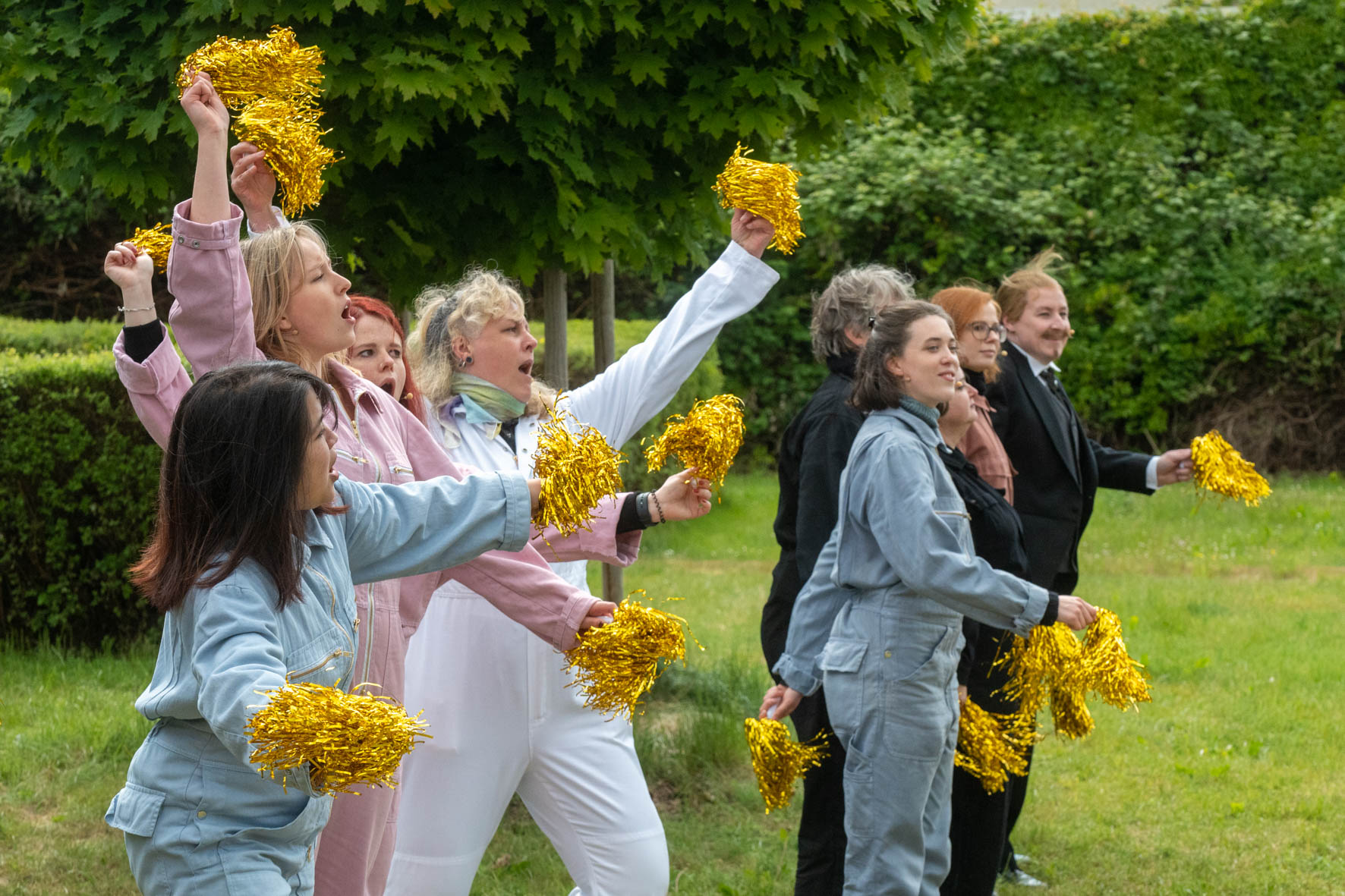
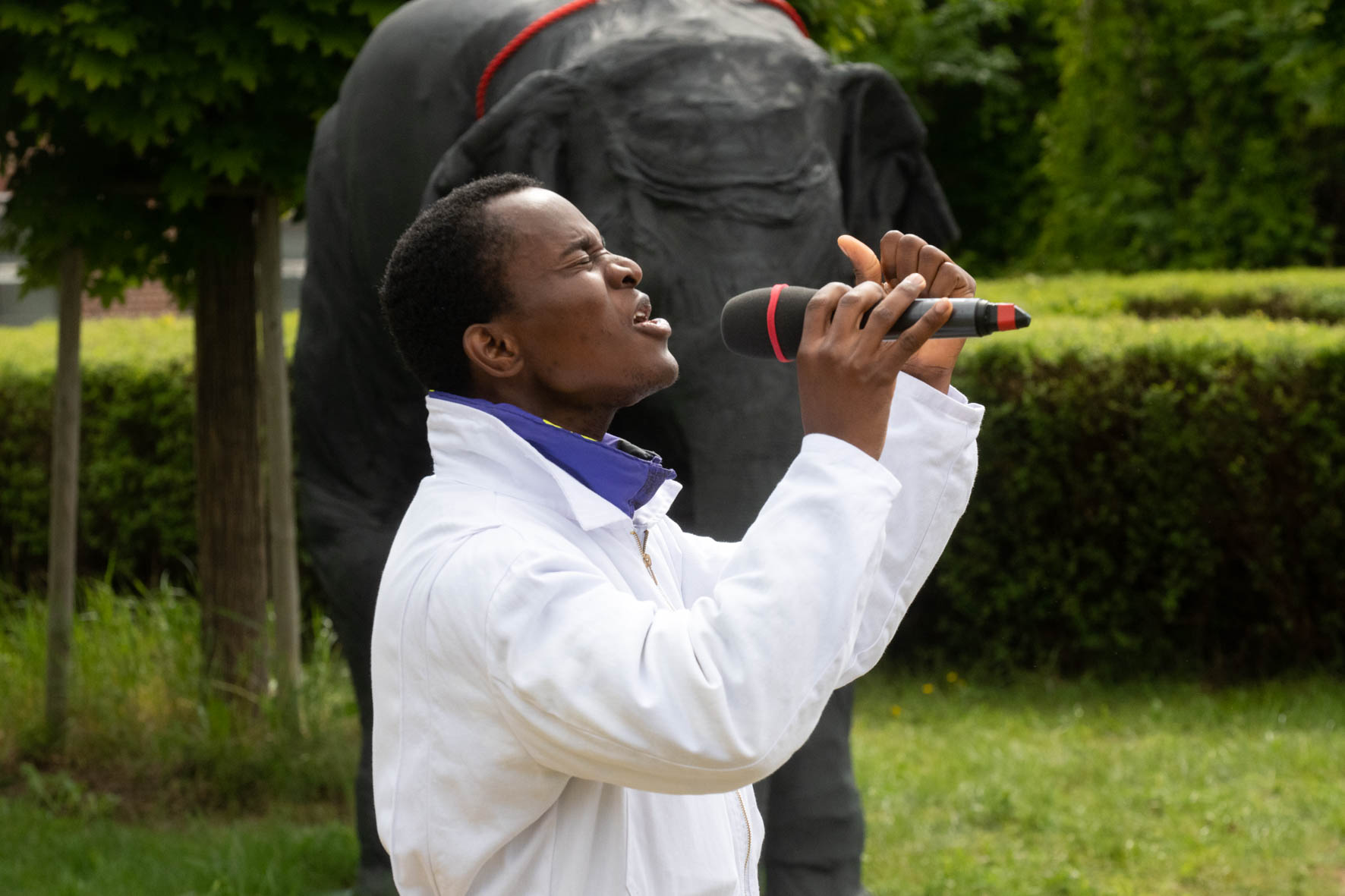
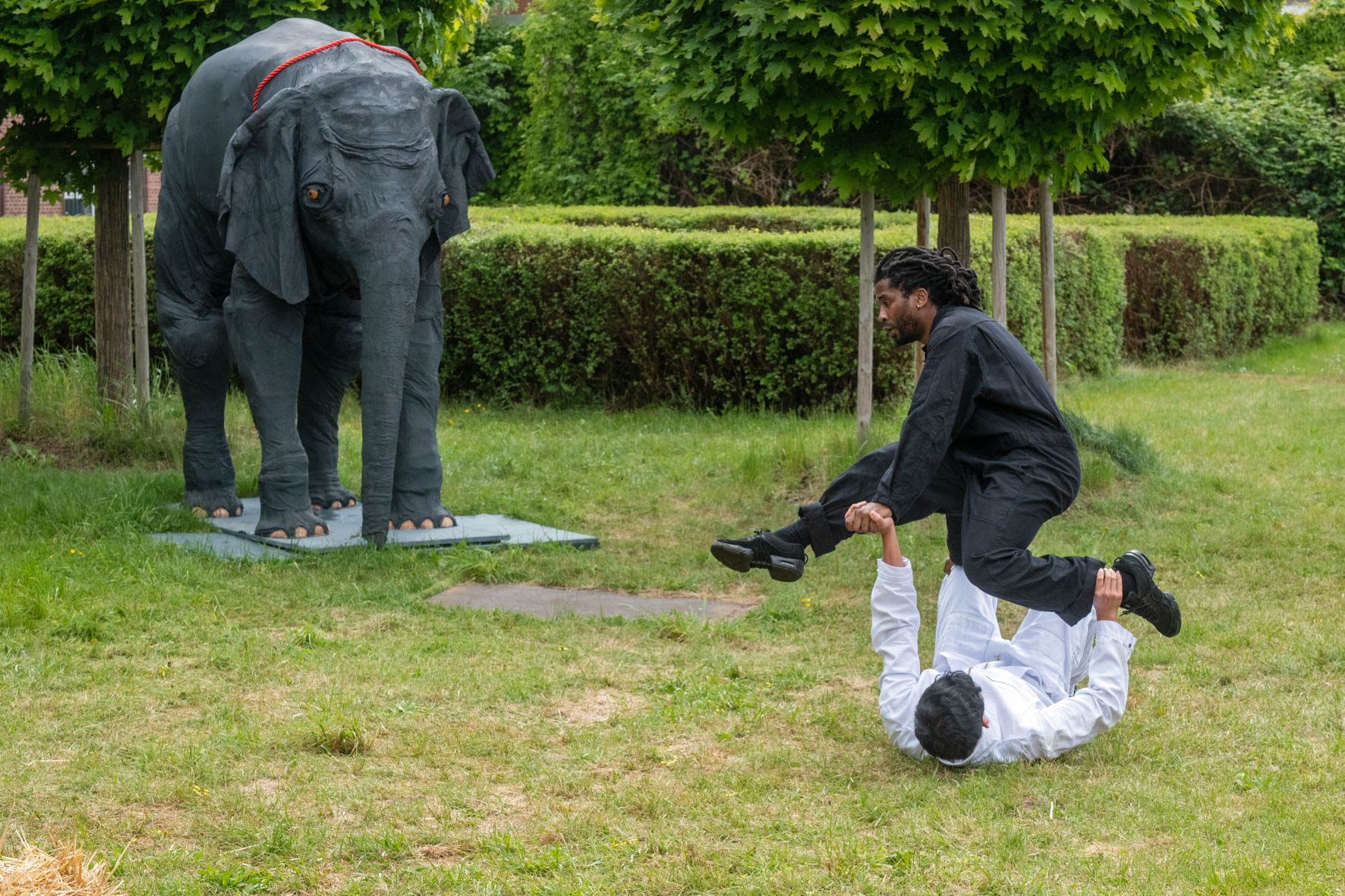
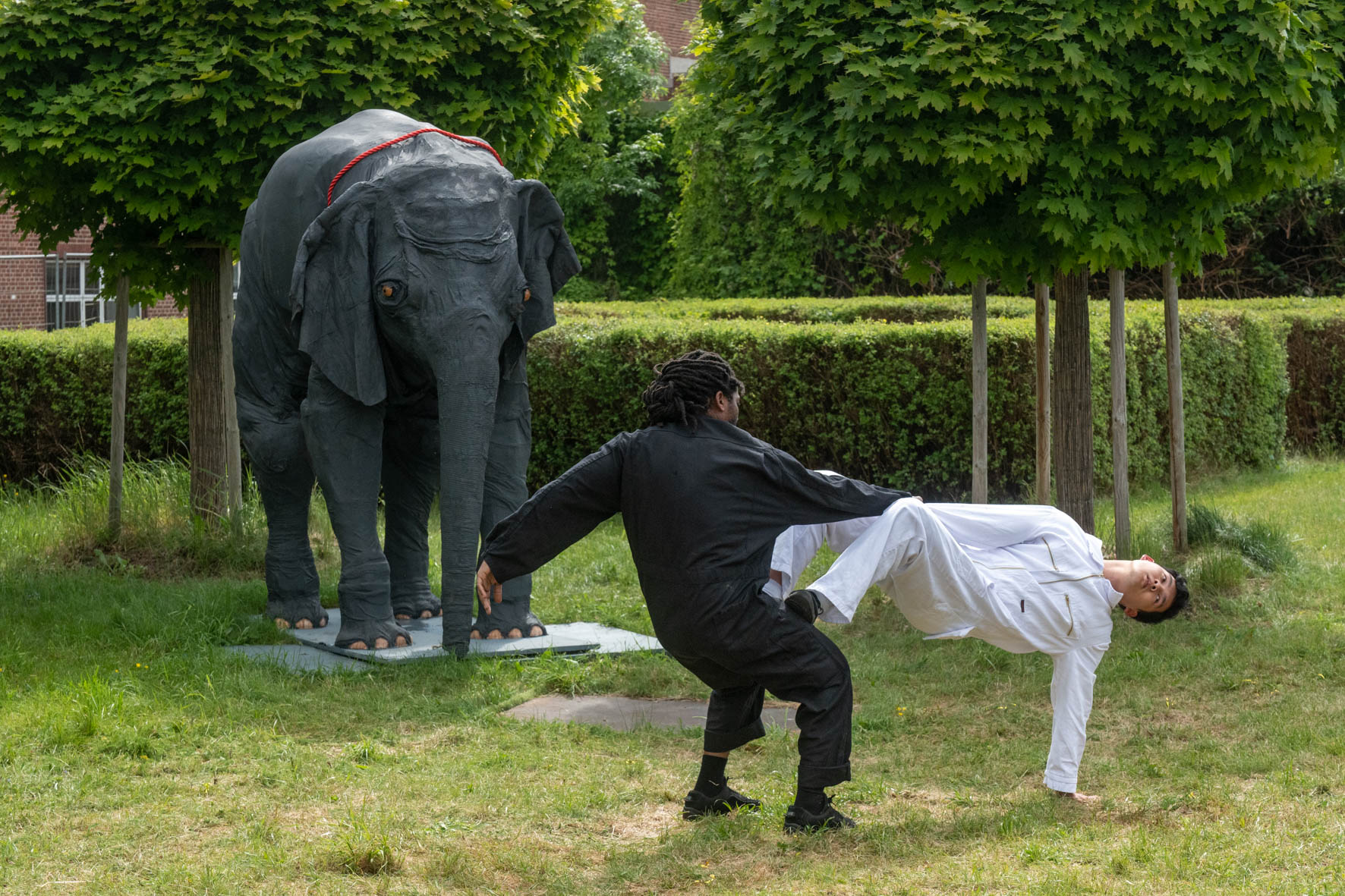
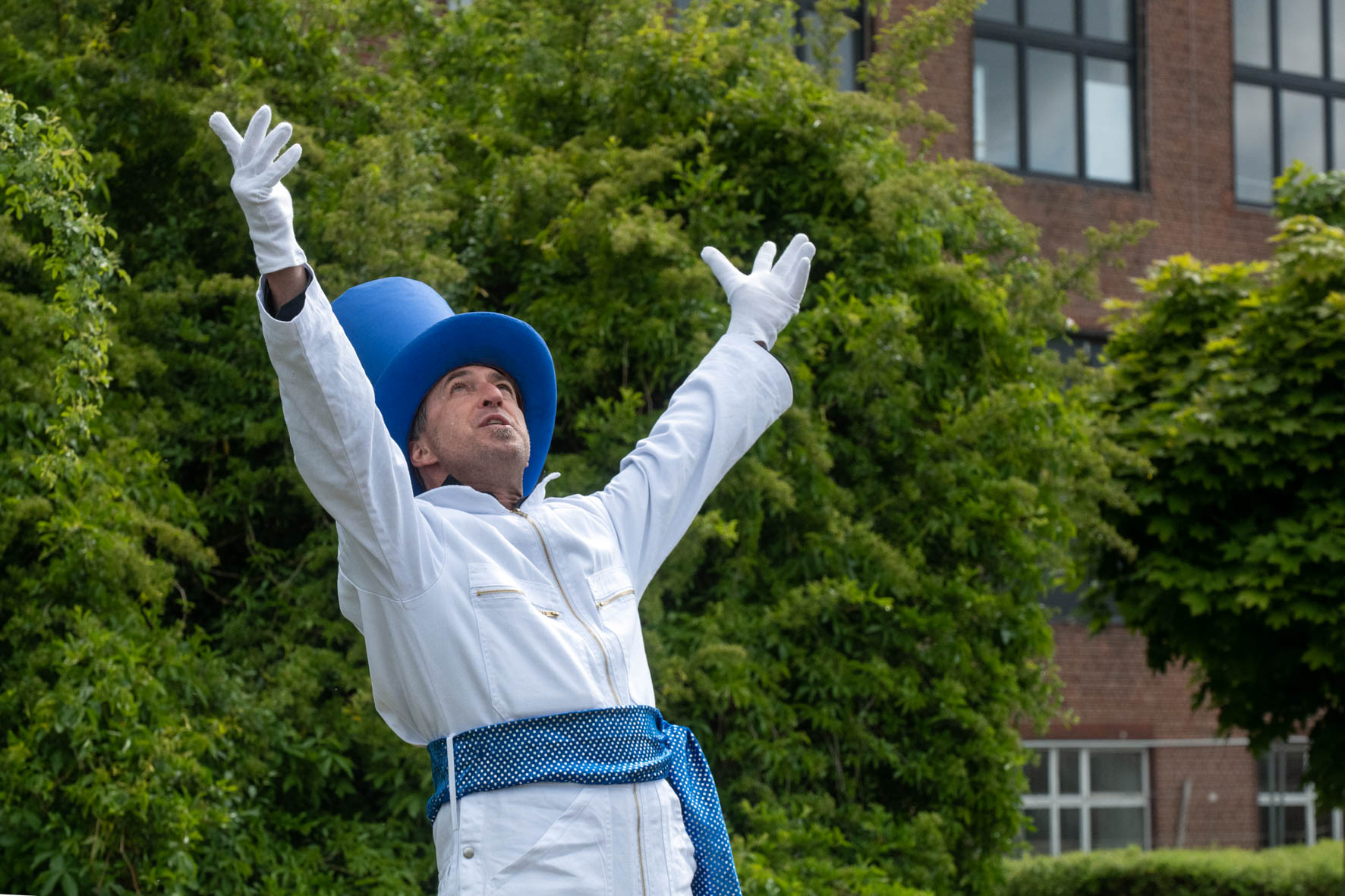
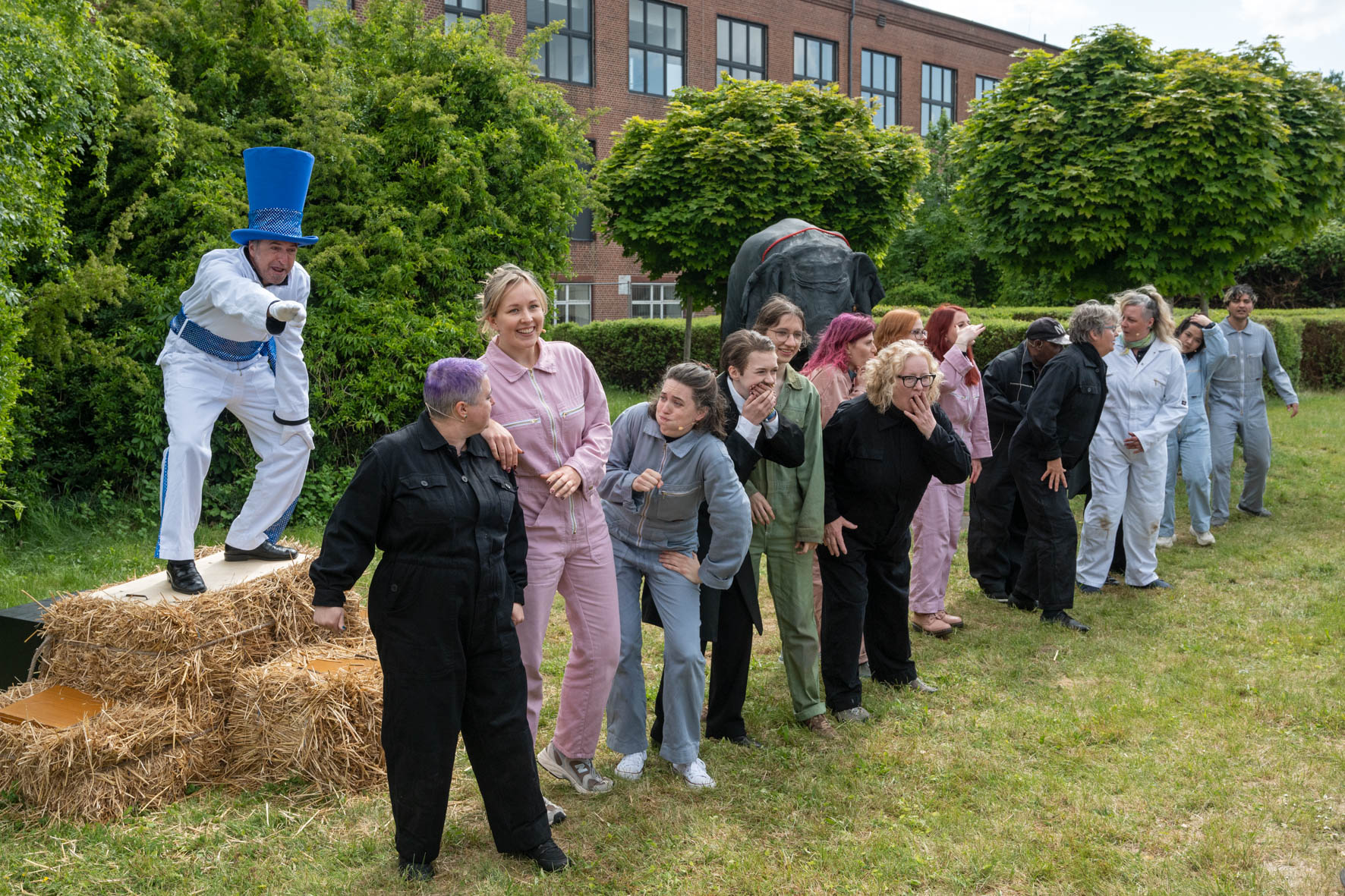
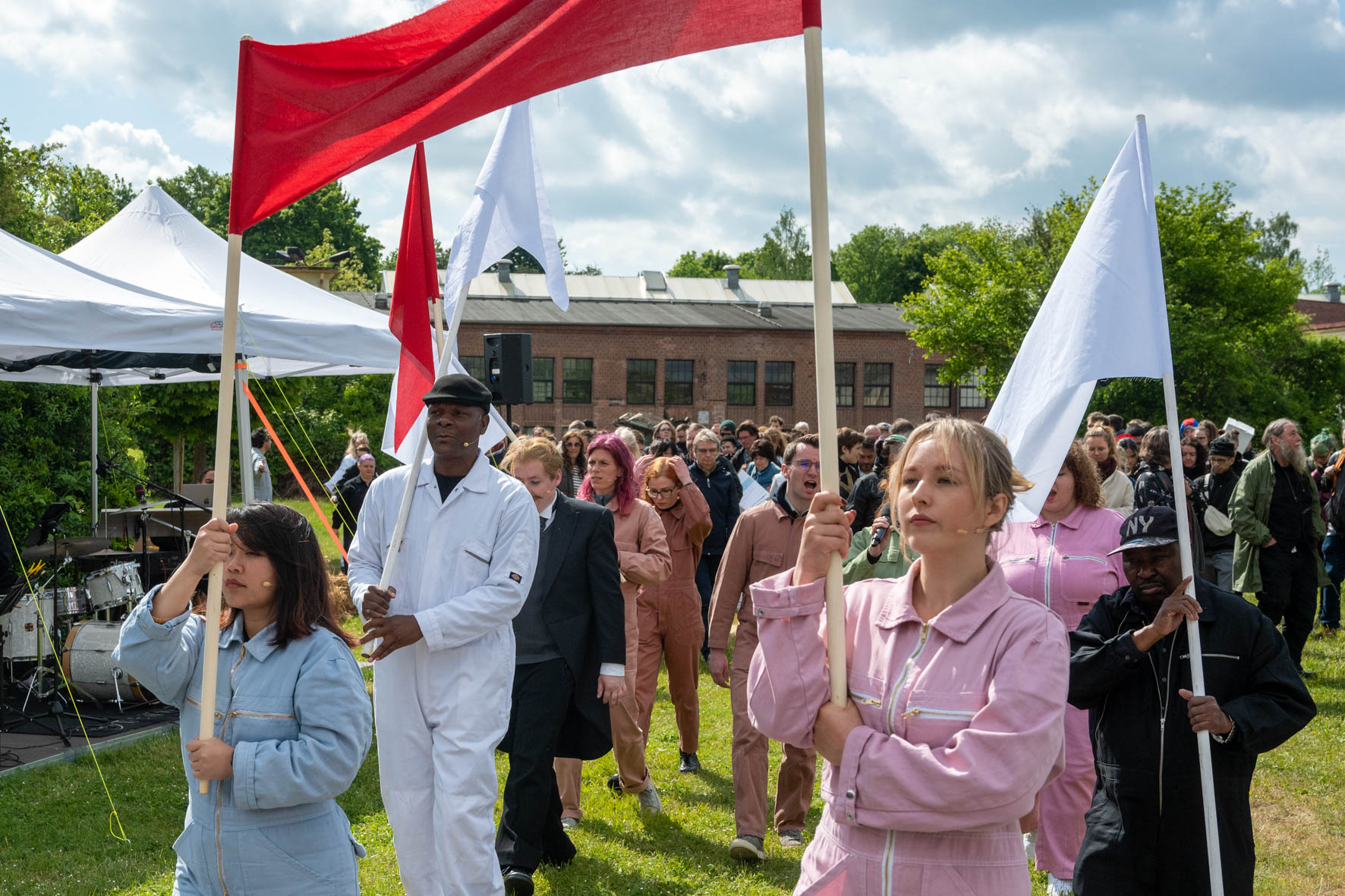
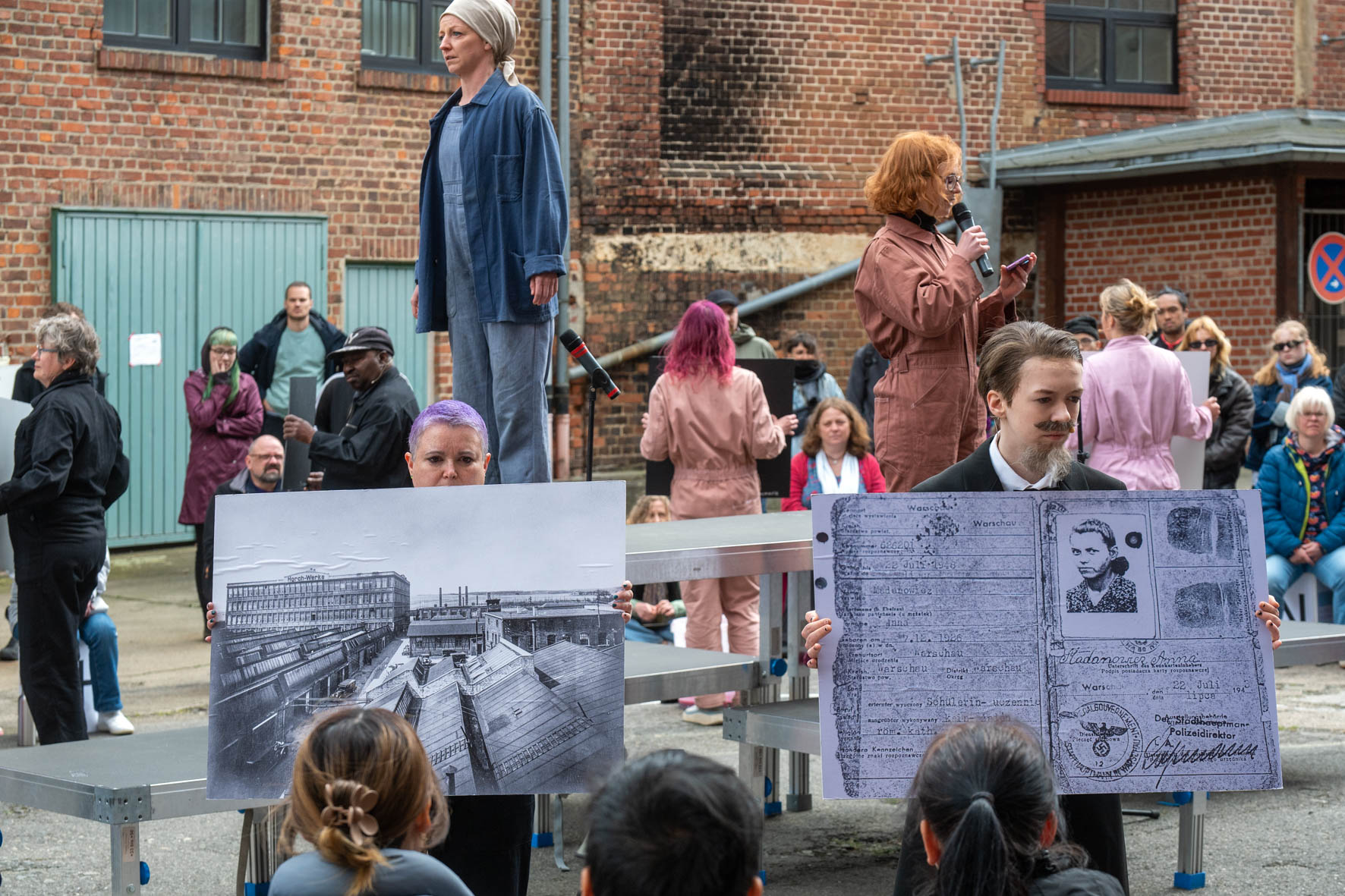
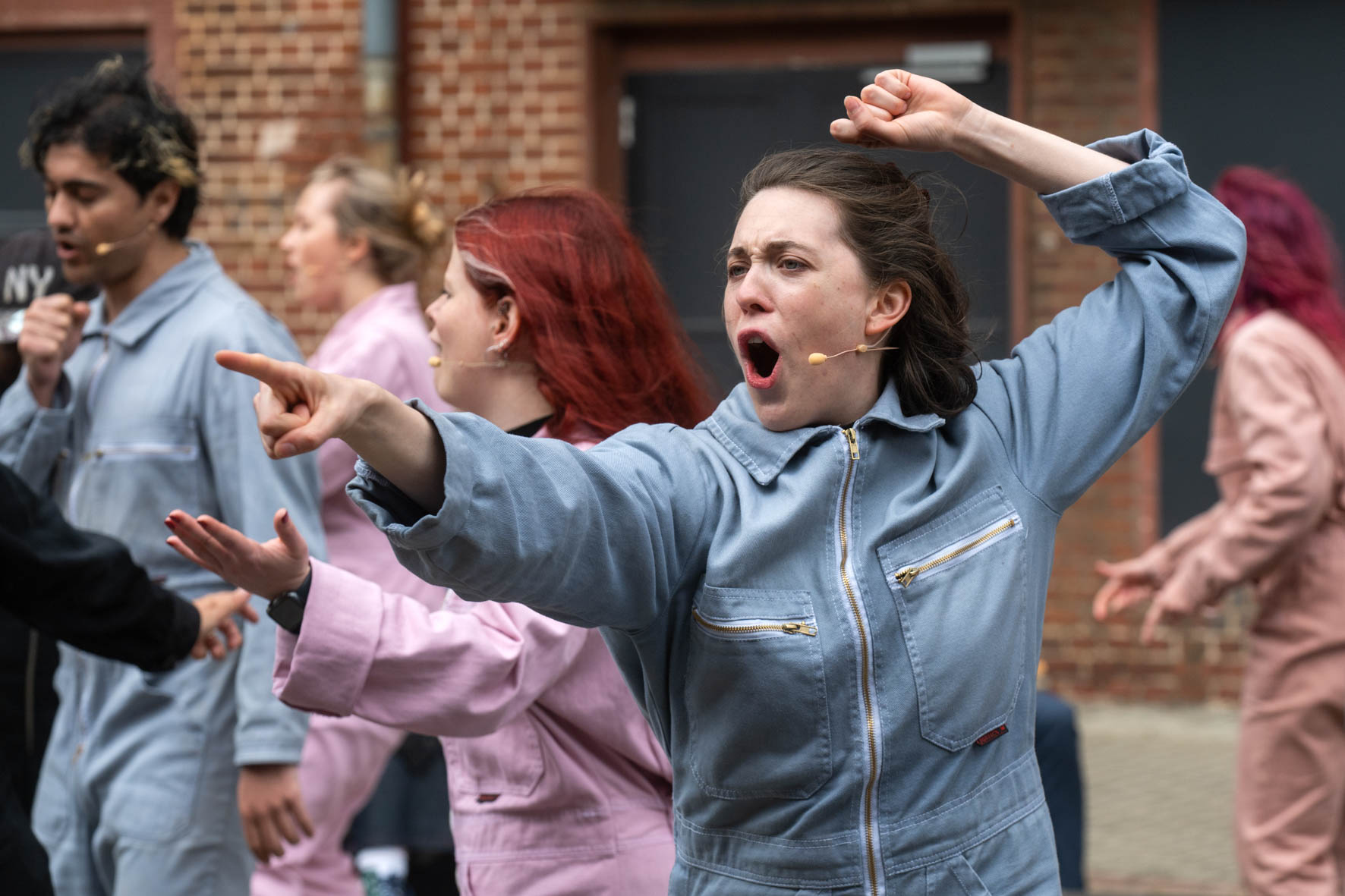
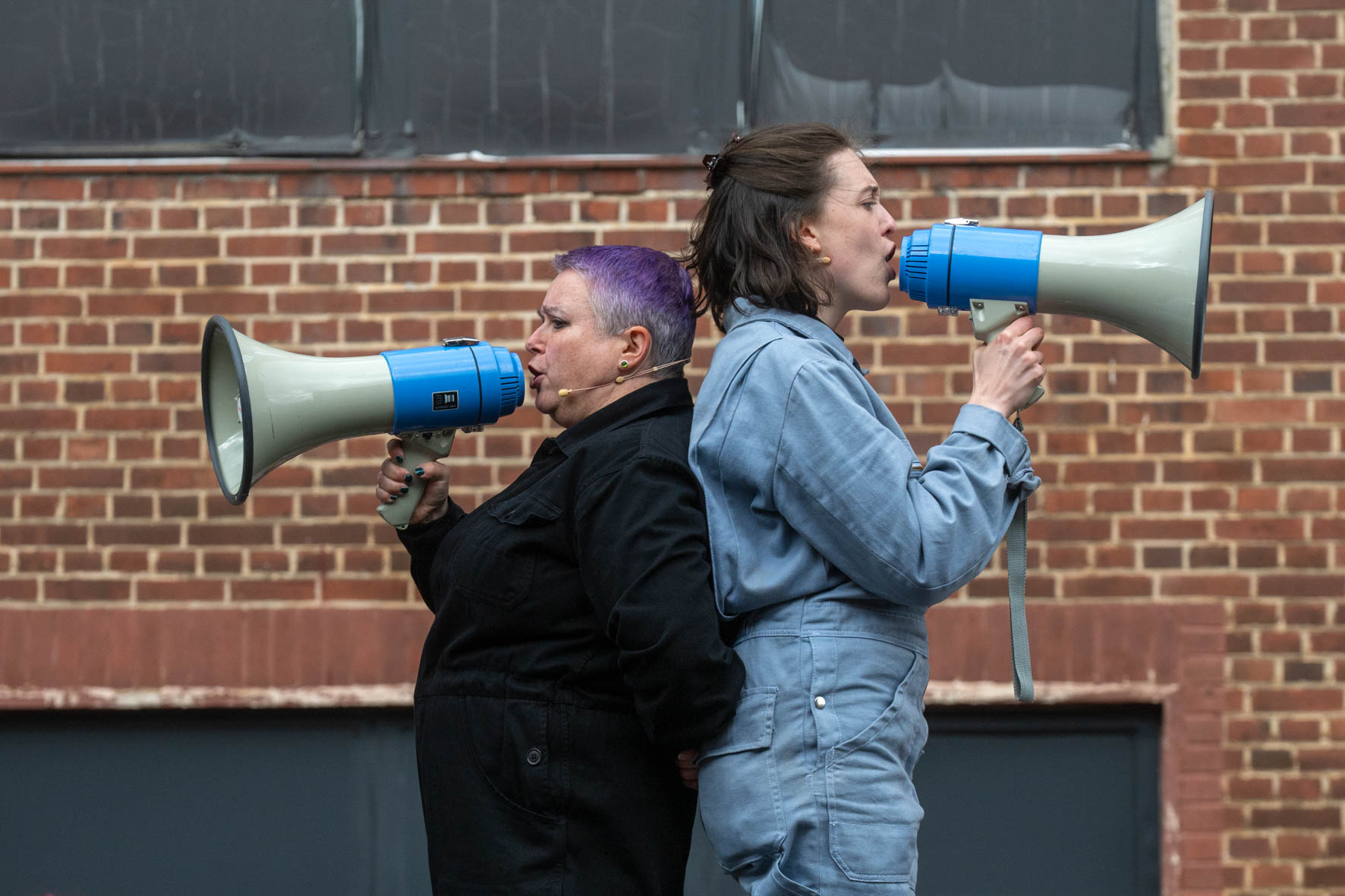
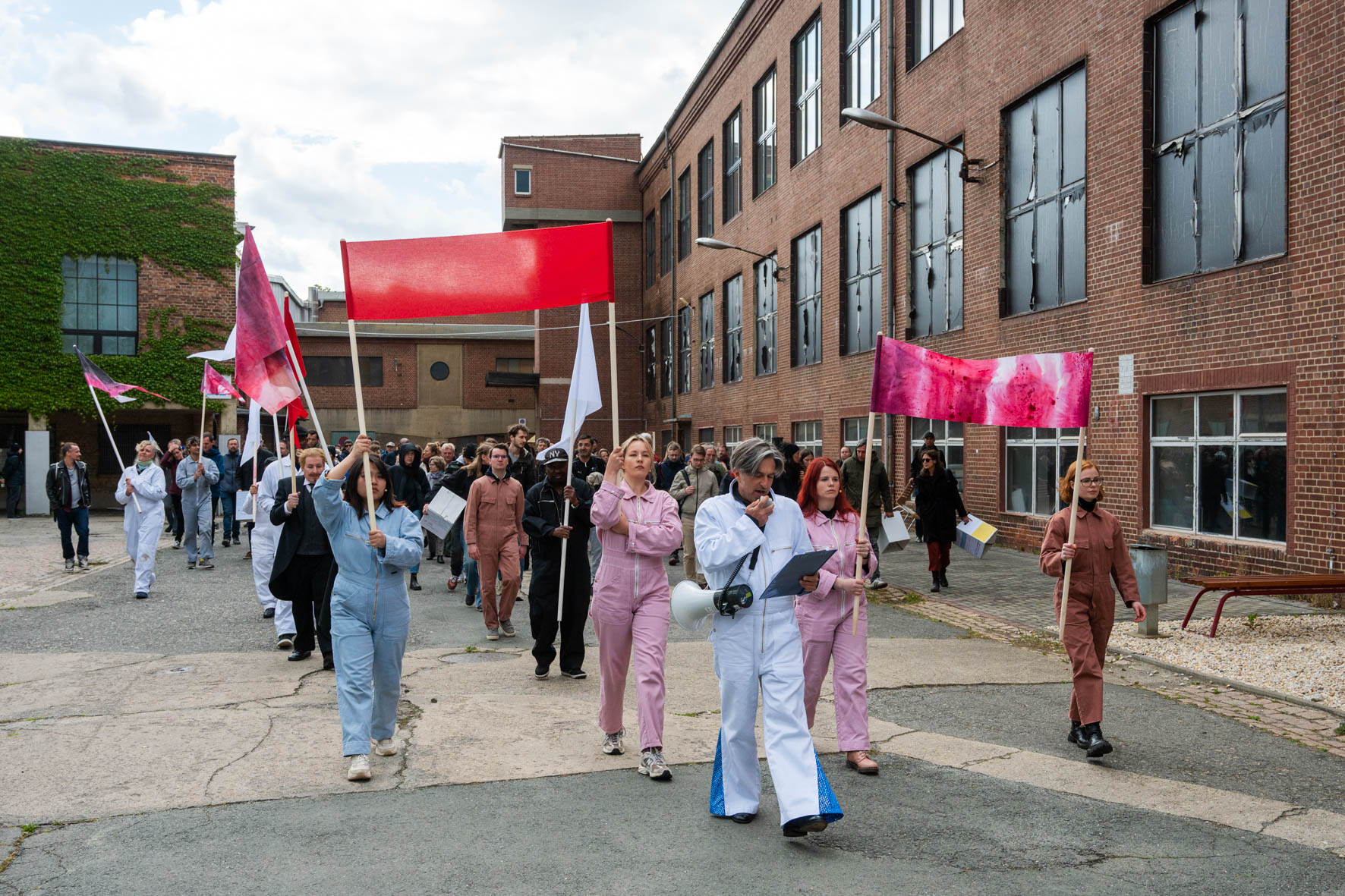

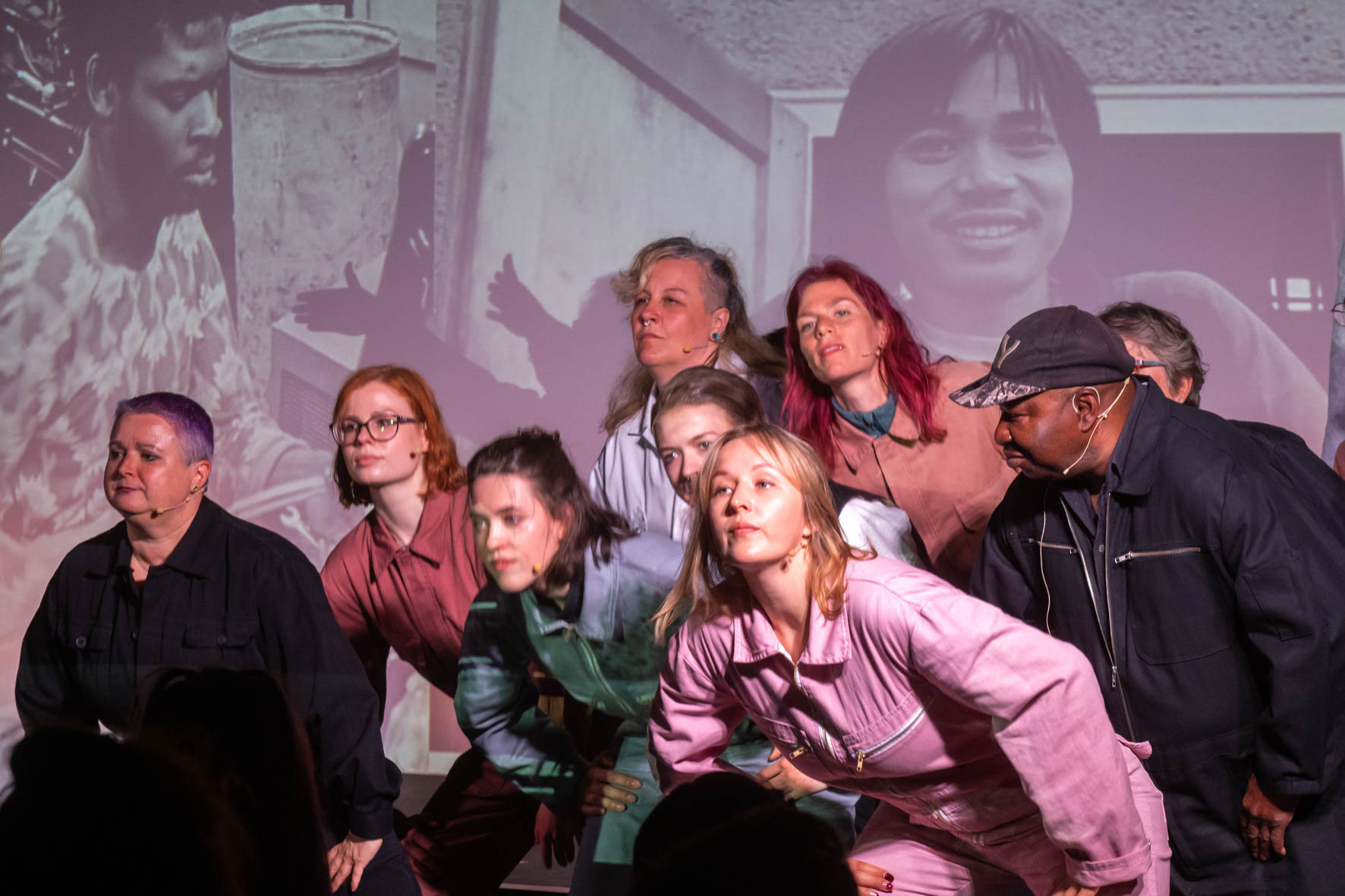
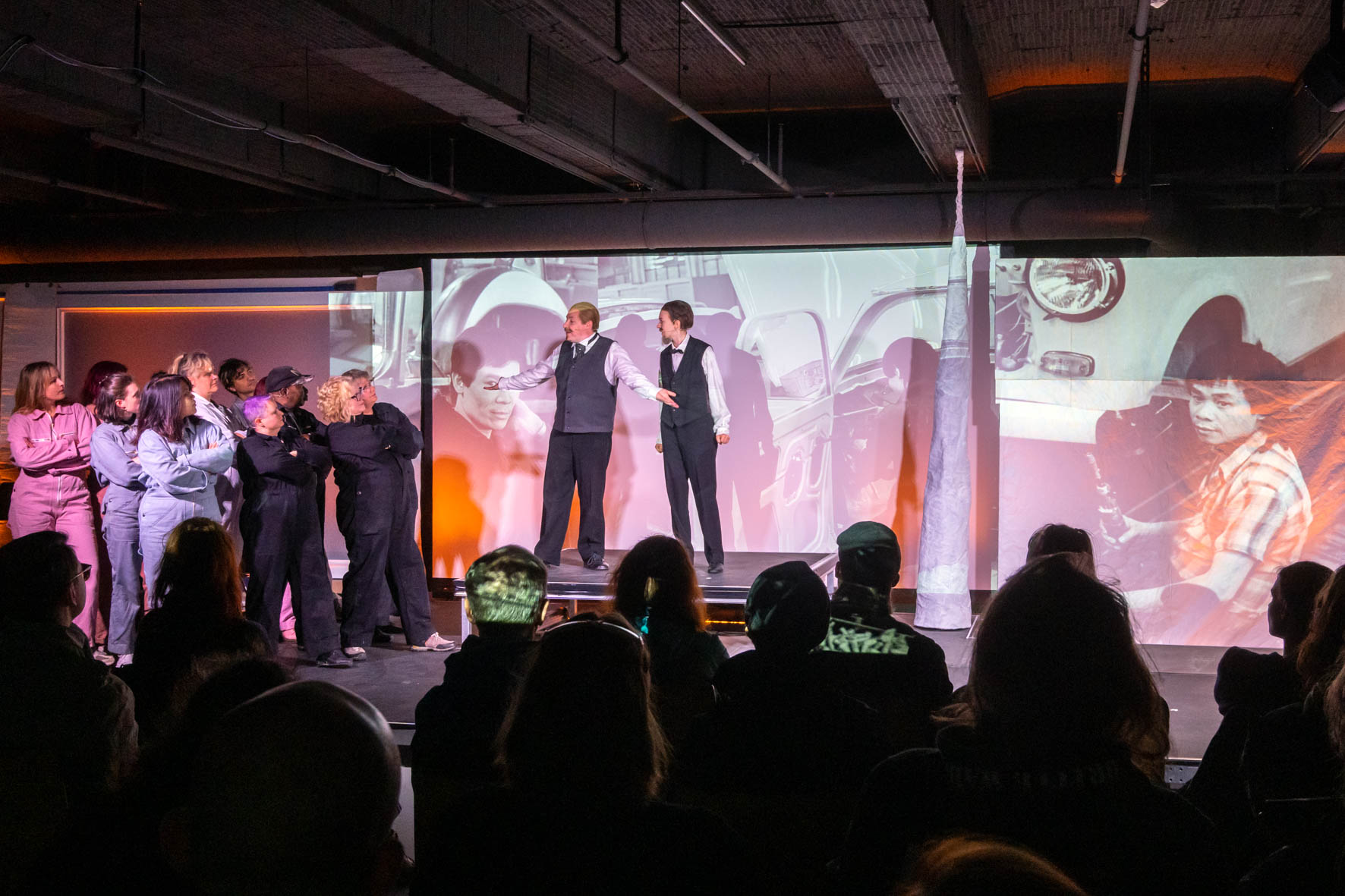
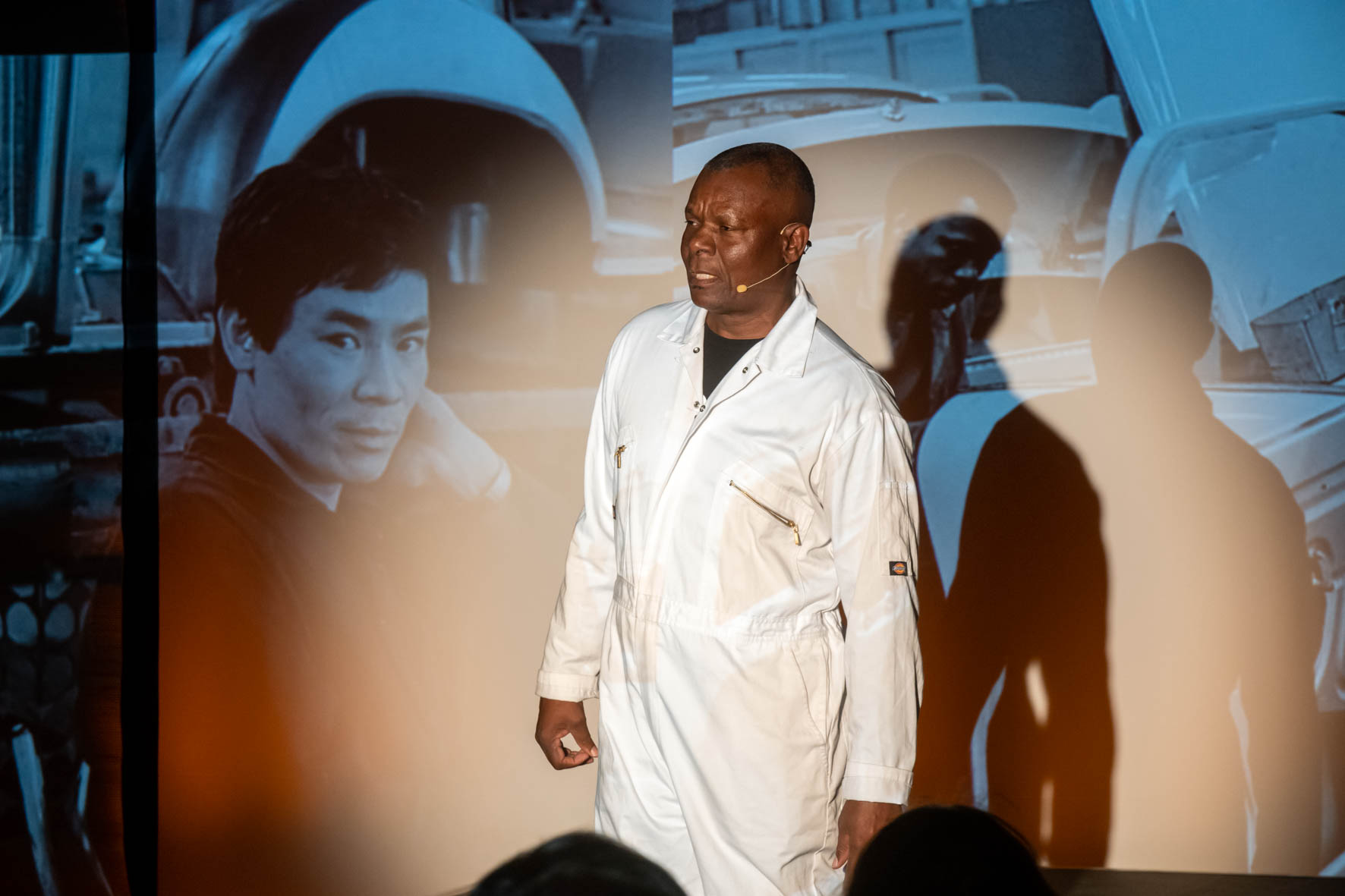
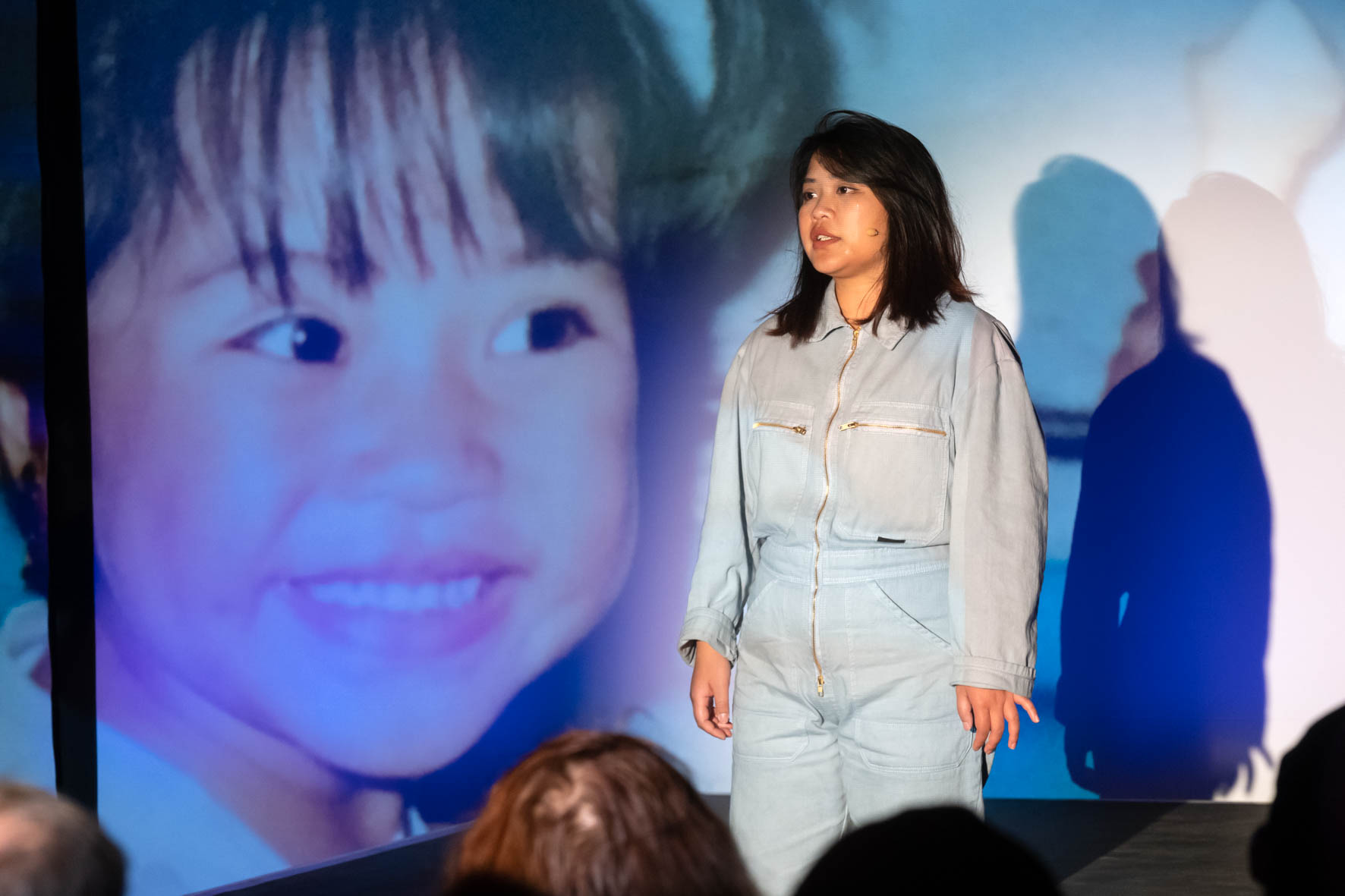
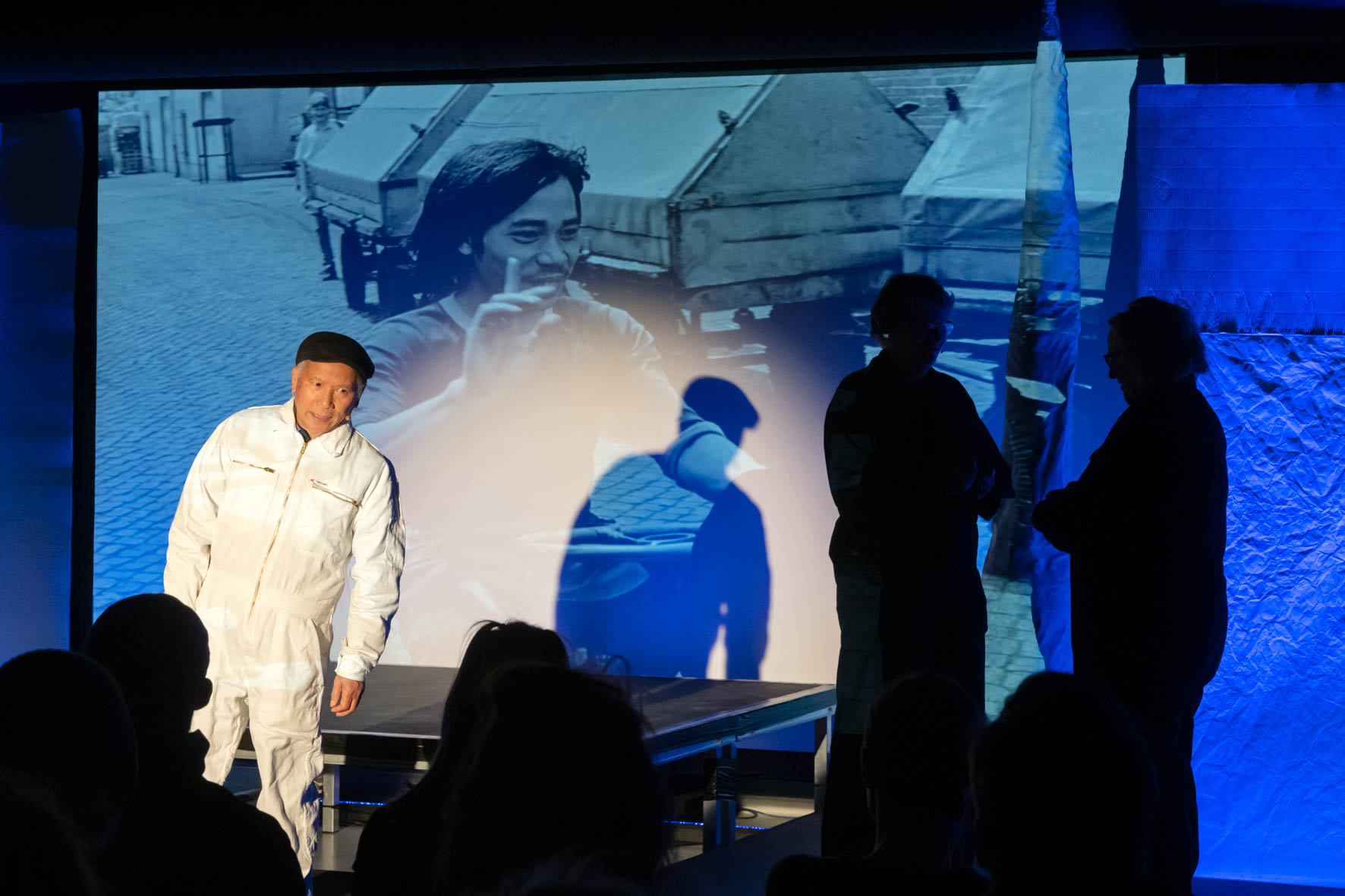
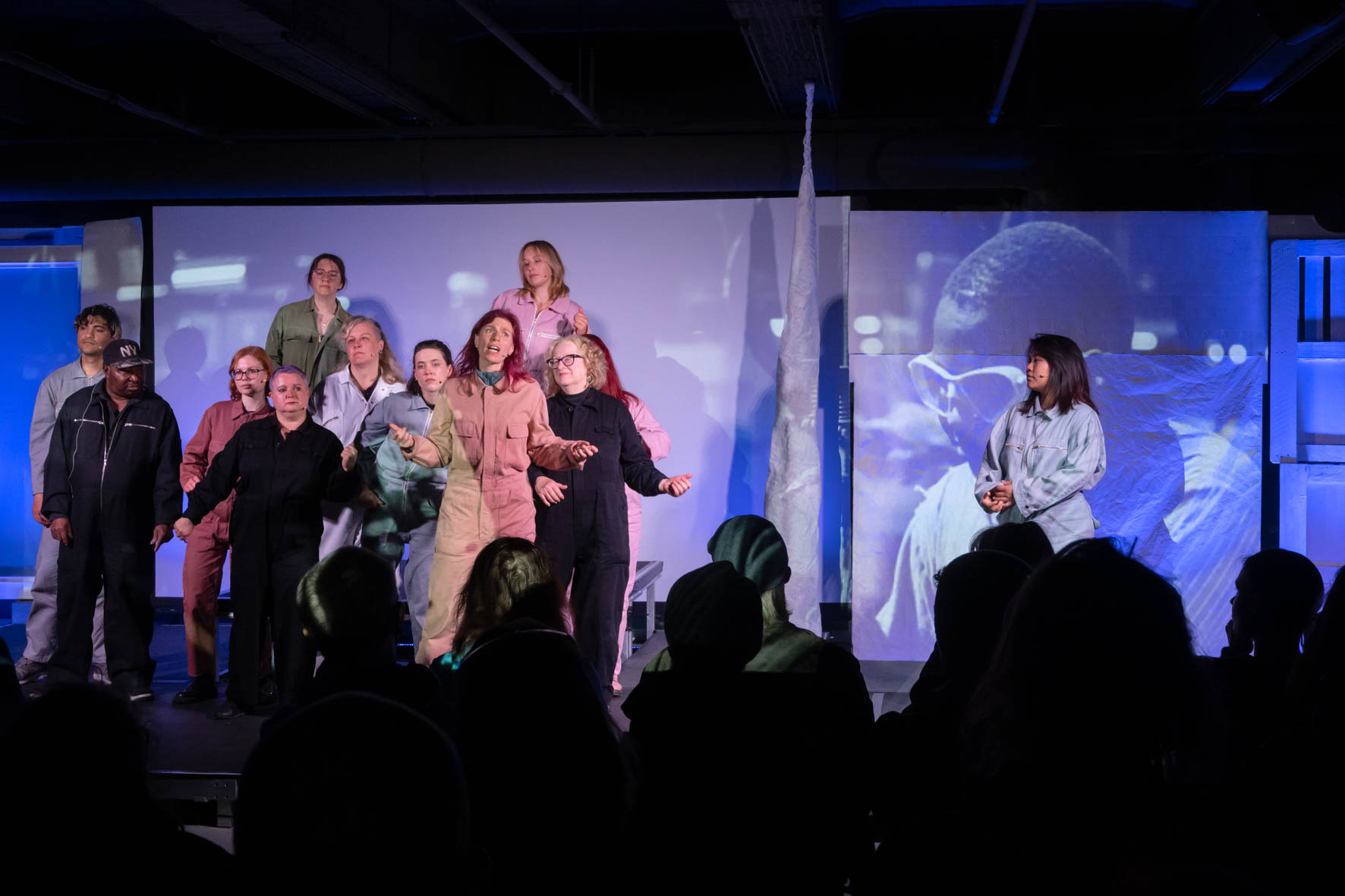
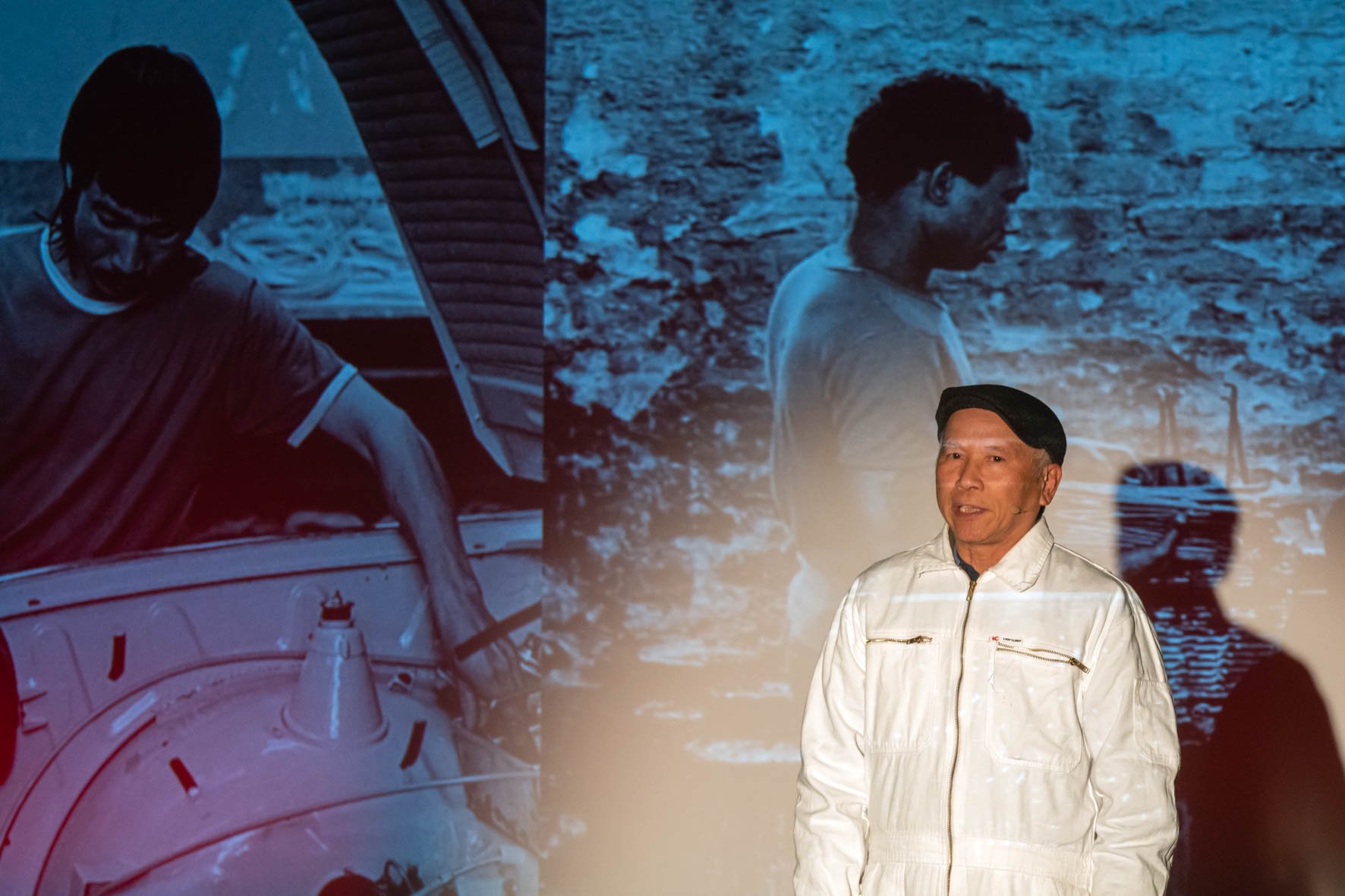
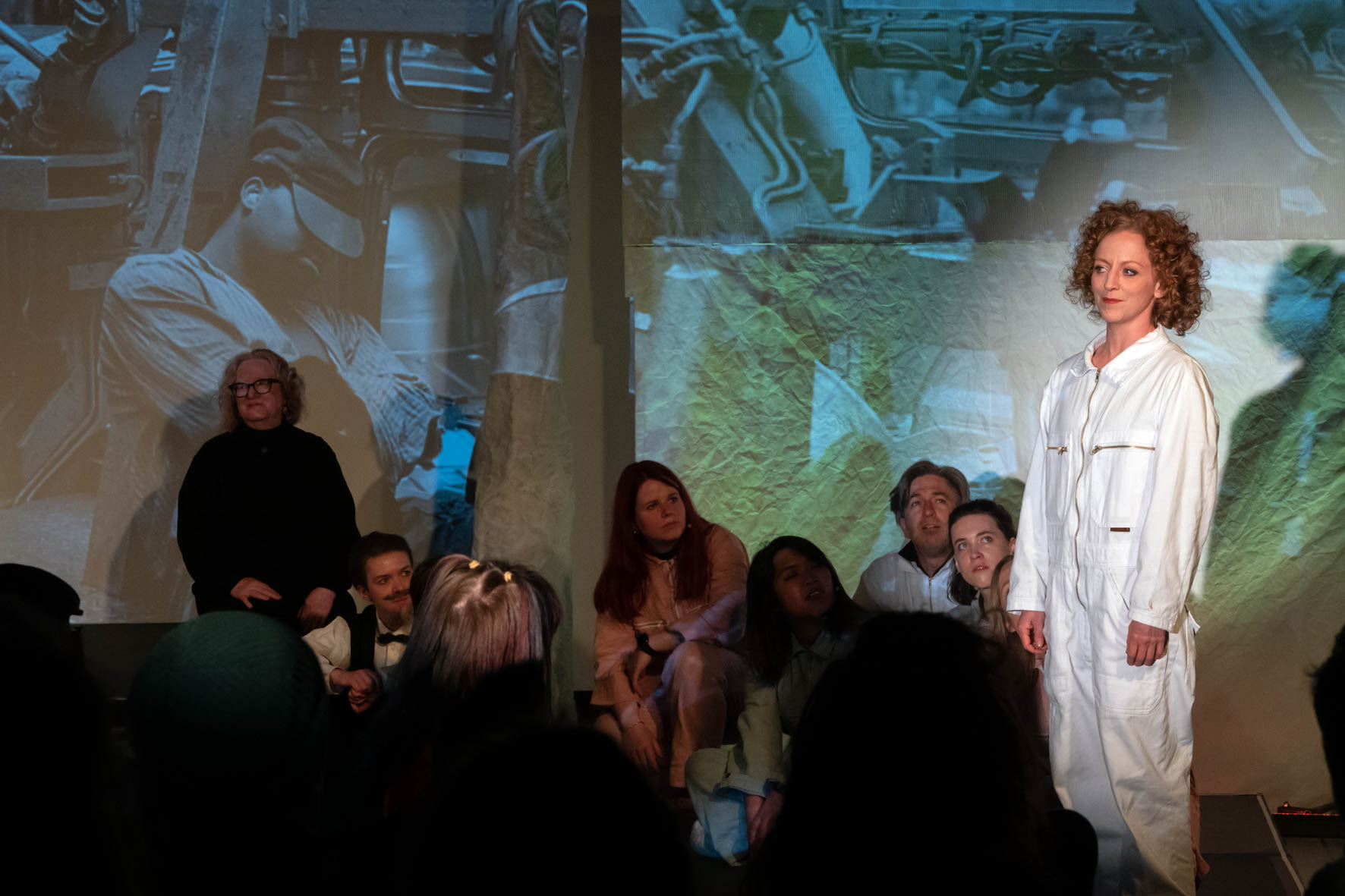

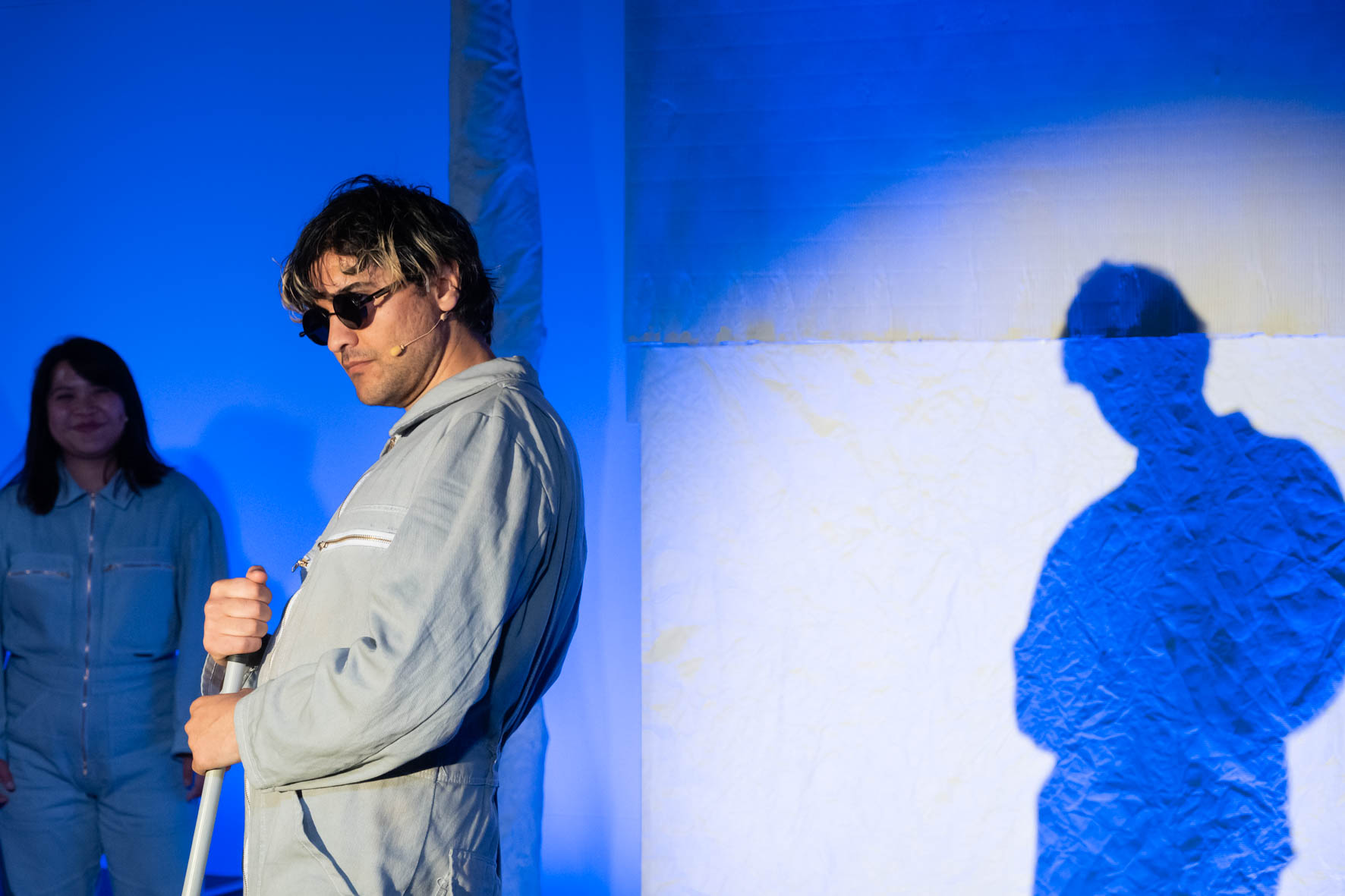
Impressions of the show ©️ Erik-Jan Ouwerkerk
Culture of remembrance:
Based on detailed research into places, people and industries in Zwickau, which examined local and international historical contexts in the area of labour migration, gaps in the collective memory were addressed. The research was based on archive material as well as eyewitness accounts.
Zwickau citizens, former Mozambican and Vietnamese contract workers such as Mr Cossa (Mos) and Mr Chinh (Viet), Karl Joseph Eckel's choir, Leo Siberski's band and the dancers Duc Le Anh and José Jalane from the communities of origin (Viet & Mos), choreographed by Gabriel Panaibra Canda (Mos), dedicated themselves to 150 years of remembrance culture. The production in public space, more precisely at the historical workplaces of the Horch factories, which were part of the Sachsenring in the GDR, makes a theatrical contribution to the 15 city-wide initiative on the culture of remembrance ‘Kein Schlussstrich’ (No Final Stroke), which was initiated against the backdrop of the NSU atrocities. The NSU killings were a series of racist murders in Germany between 2000 and 2007, committed by the far-right terrorist group National Socialist Underground (NSU), targeting primarily people of Turkish and Greek descent. The aim of the initiative is to bring the perspectives of the victims' relatives and the (post-)migrant communities into the public eye in order to counteract the rise of right-wing extremism, contempt for humanity and xenophobia.
Labour migration is a recurring theme throughout the city's history and threatens to disappear from the region's self-image. Zwickau is a city with a long and varied industrial history. Vehicle construction, the textile industry and mechanical engineering are deeply rooted in the identity of the people of Zwickau. However, the workers who made these industries possible, including BIPoCs from non-European countries and migrants who have also lived and worked in the region voluntarily or involuntarily for 150 years, are denied this sense of belonging.
That is why we are looking for traces of this ‘suppressed’ part of Zwickau's history in three eras: The colonial era 150 years ago, the era 80 years ago, which was characterised by concentration and labour camps, and the era 50 years ago, which deals with contract workers in the GDR.
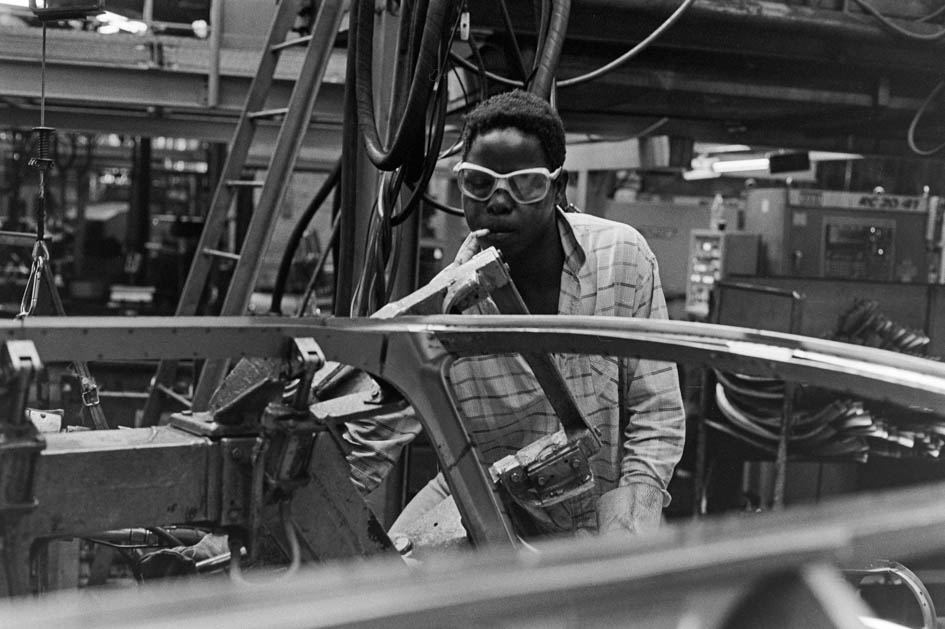
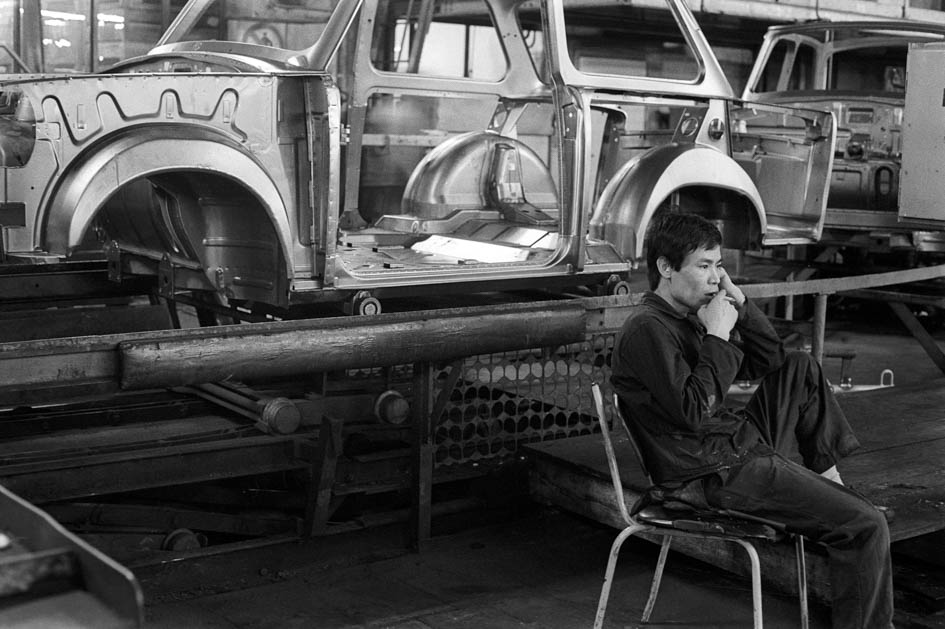
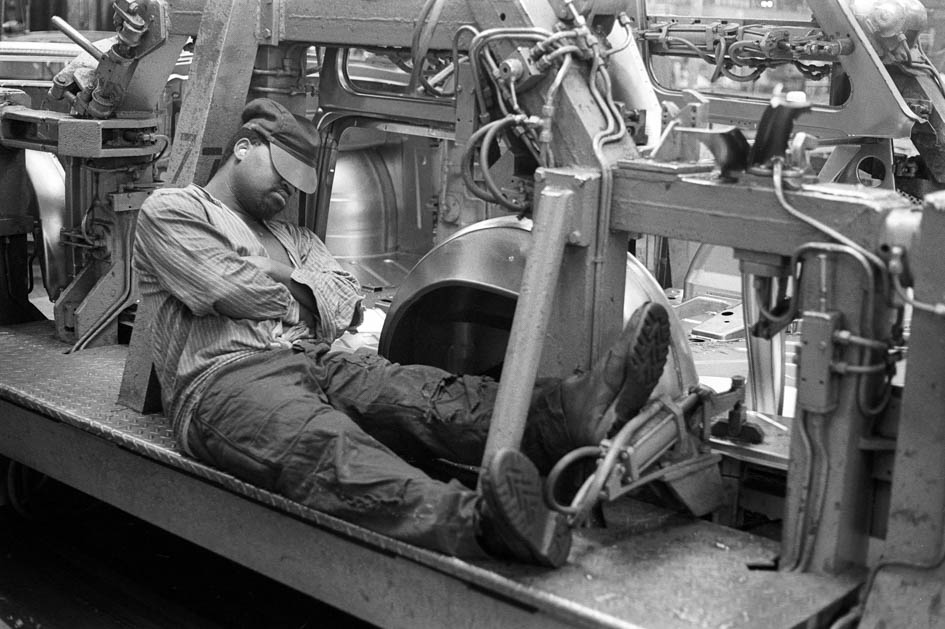
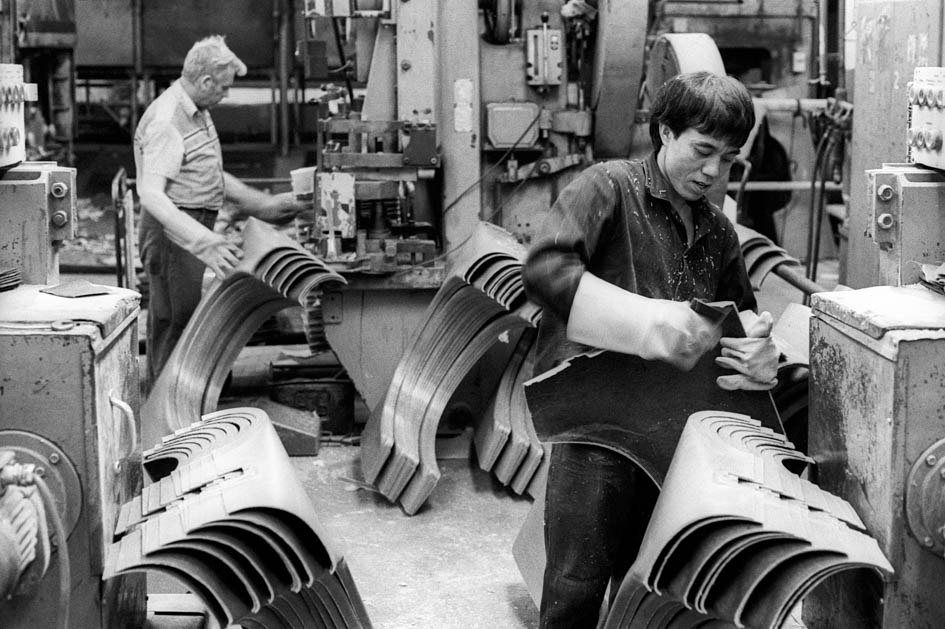
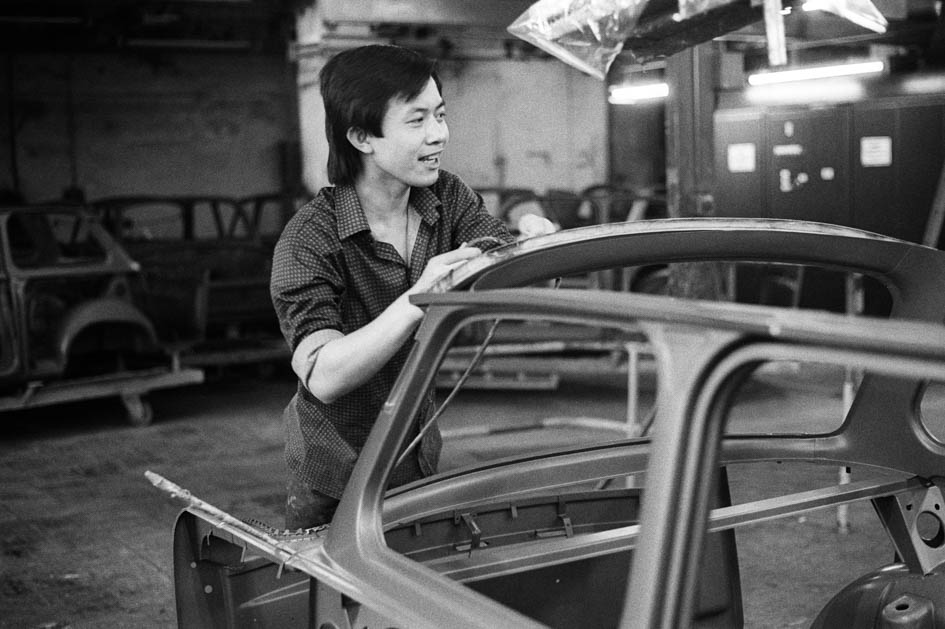
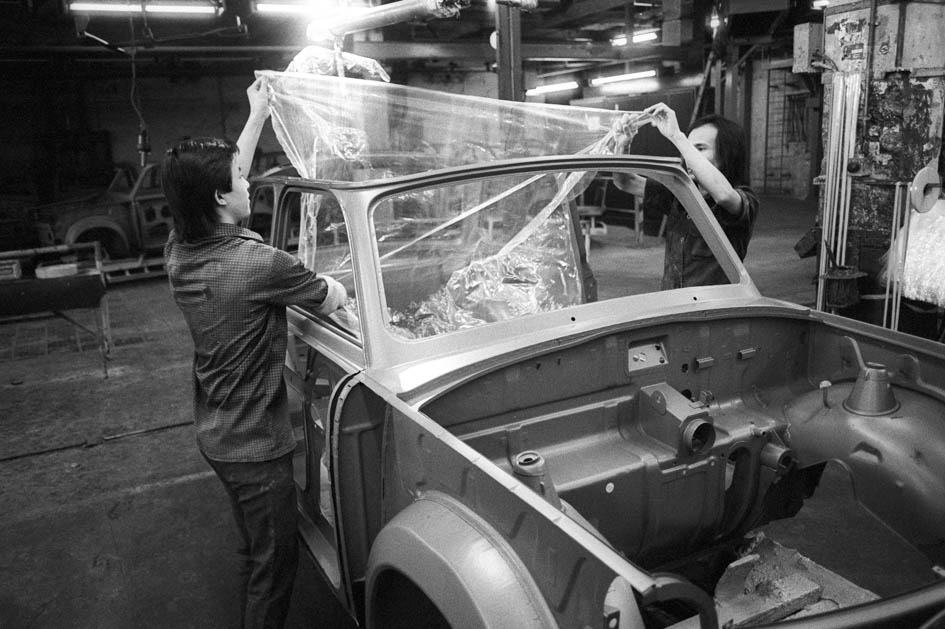
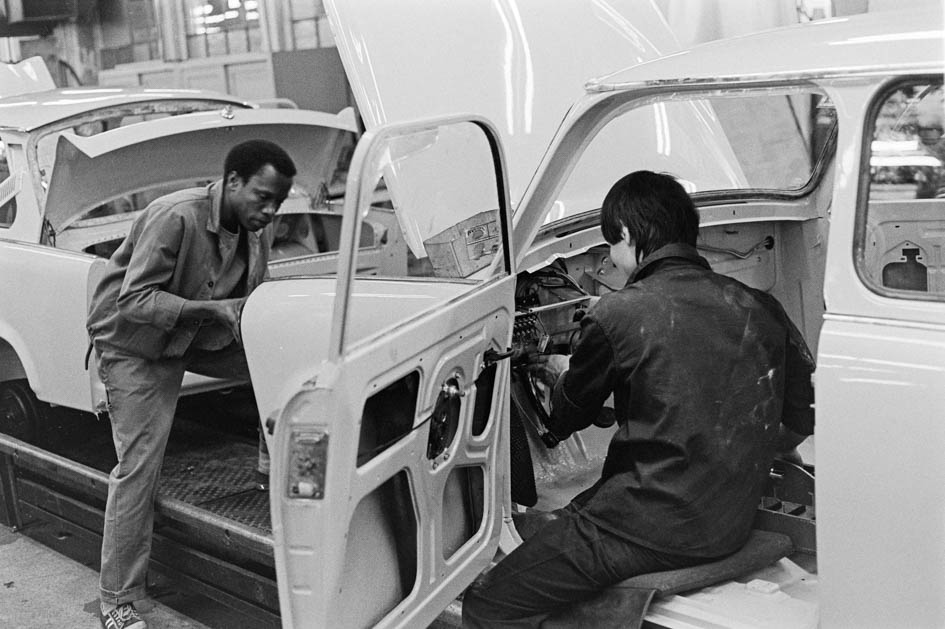

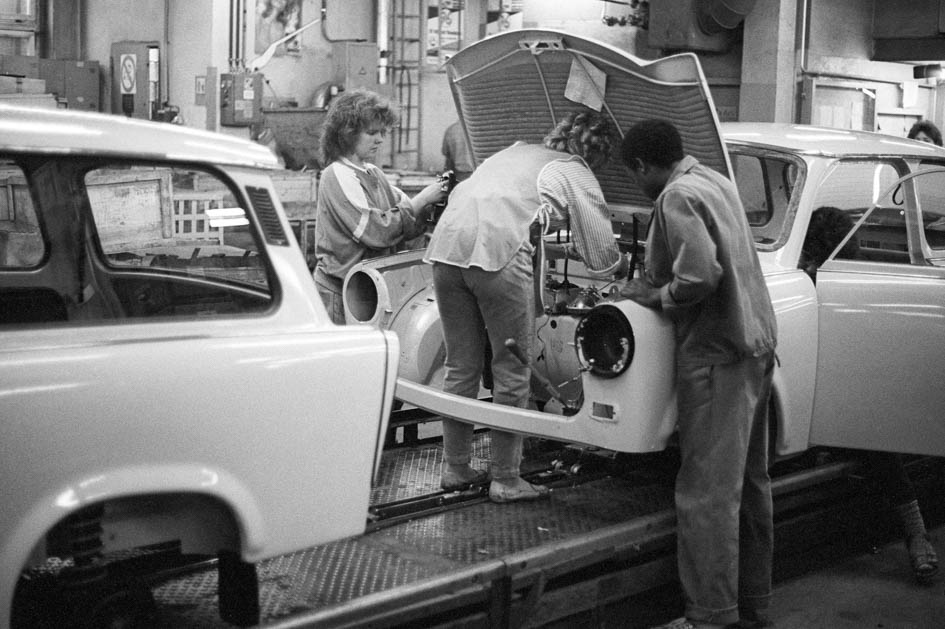
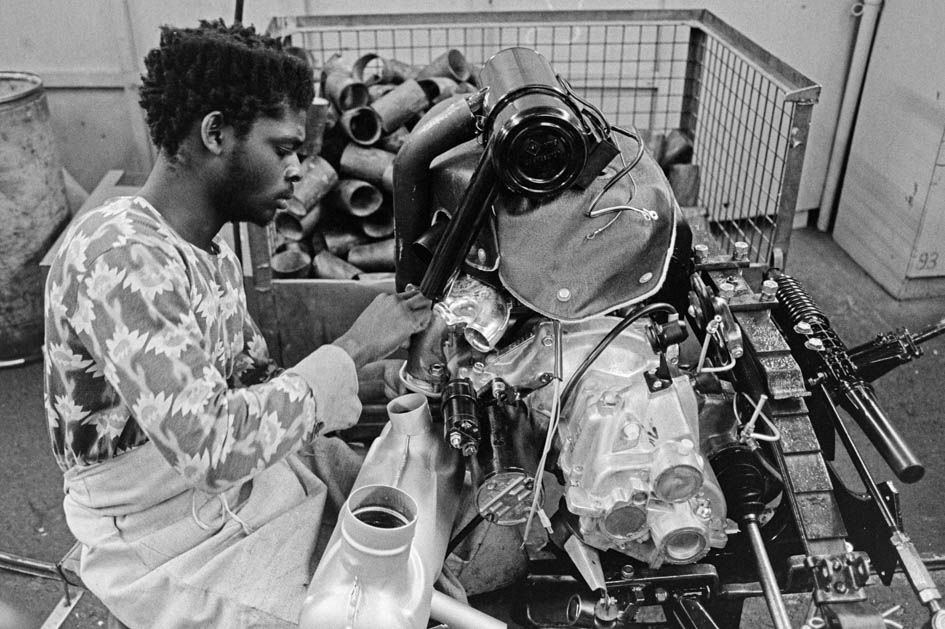
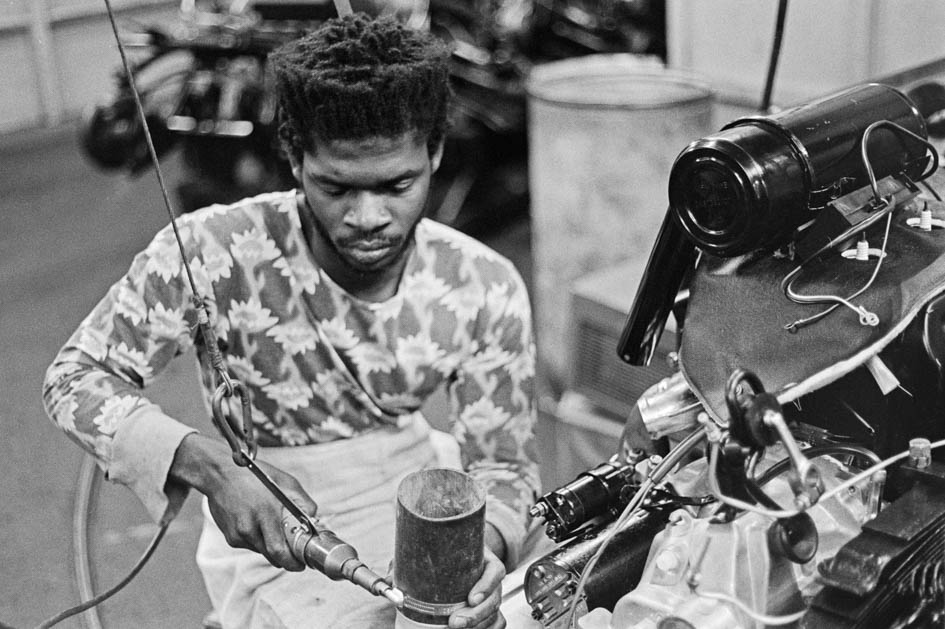
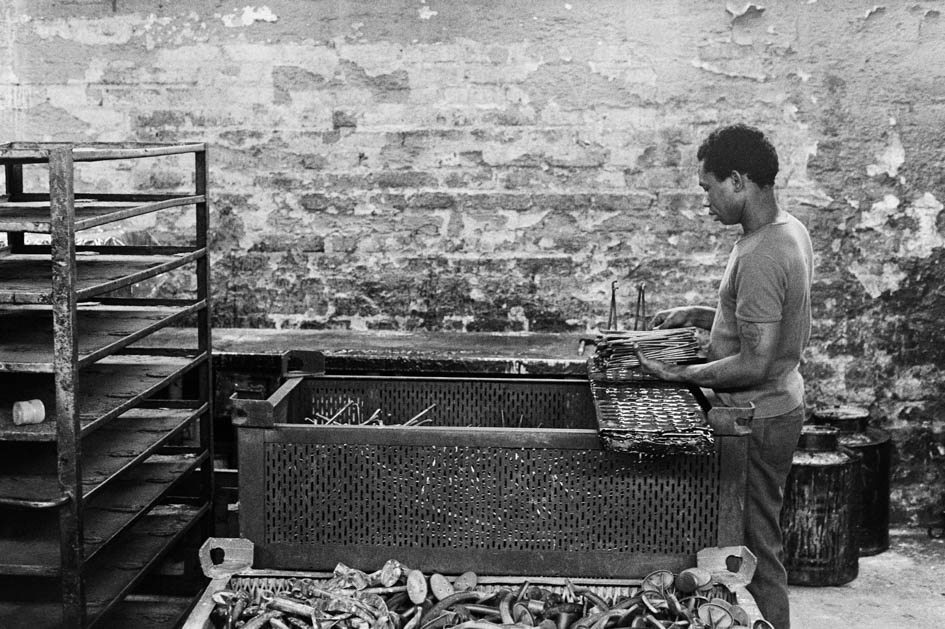
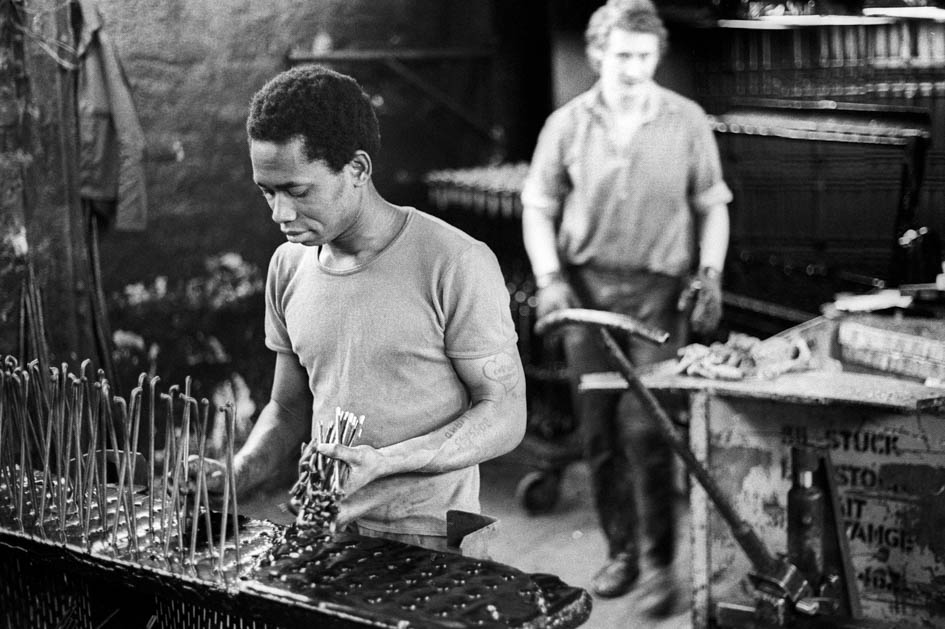


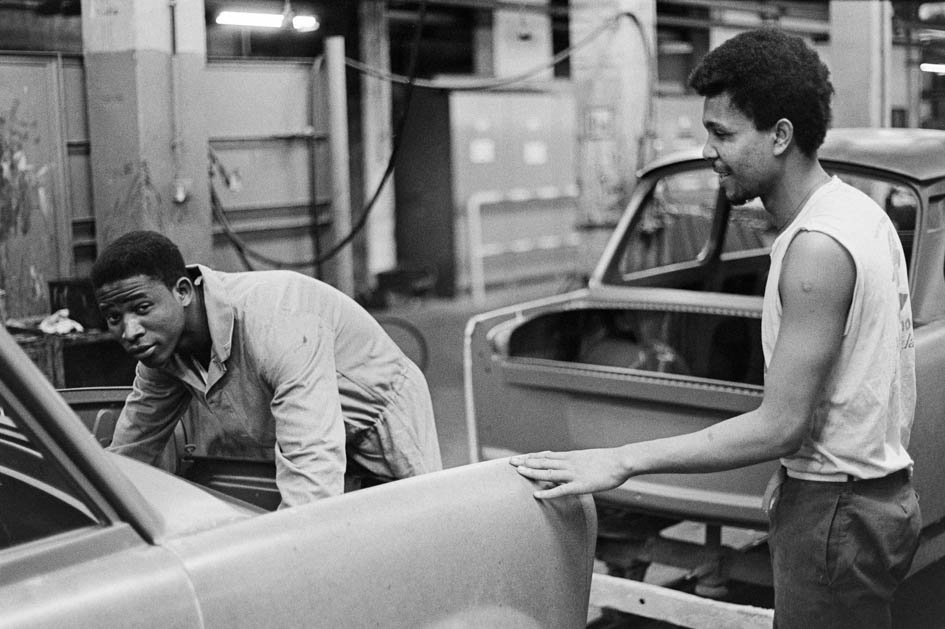

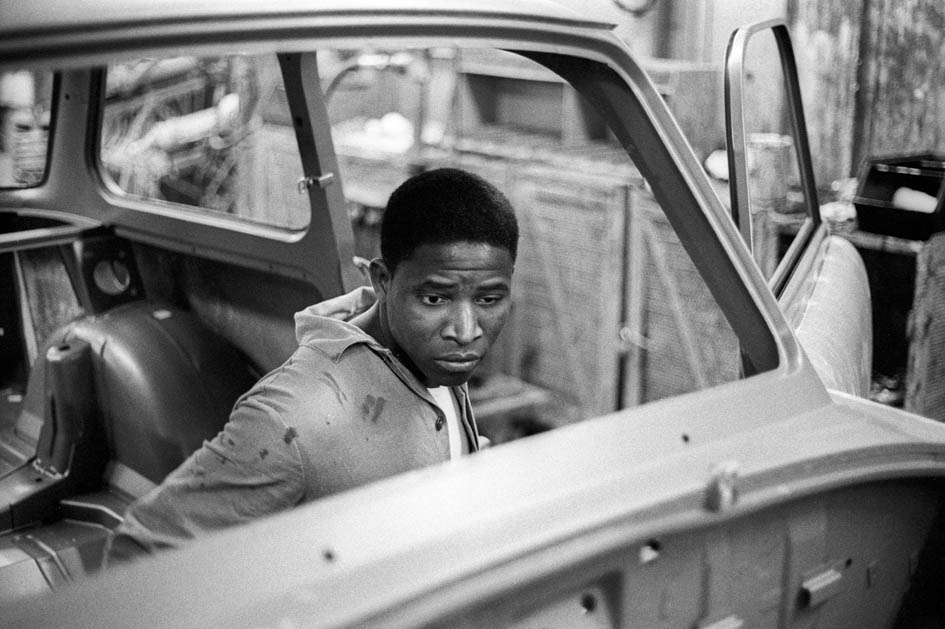
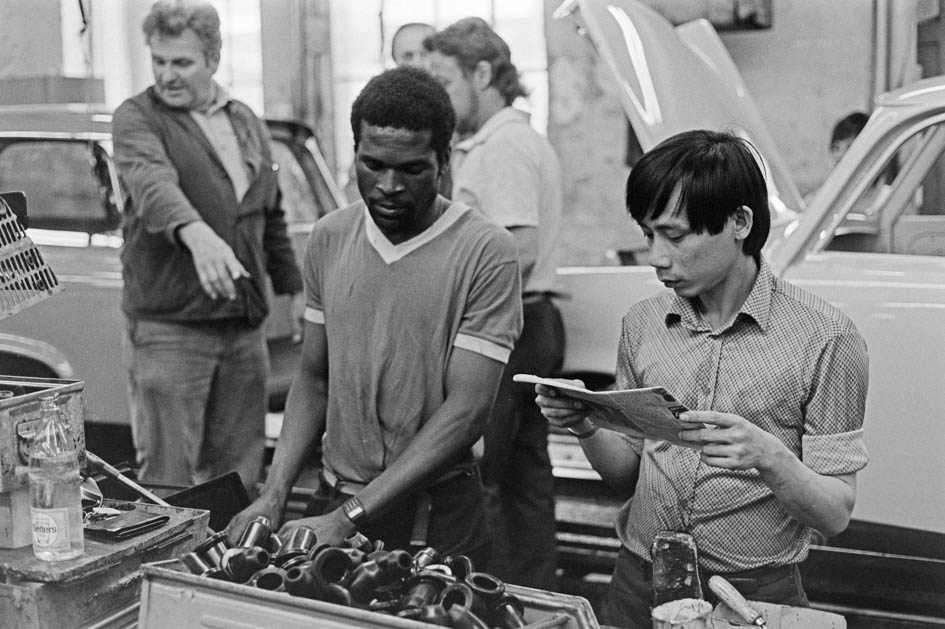
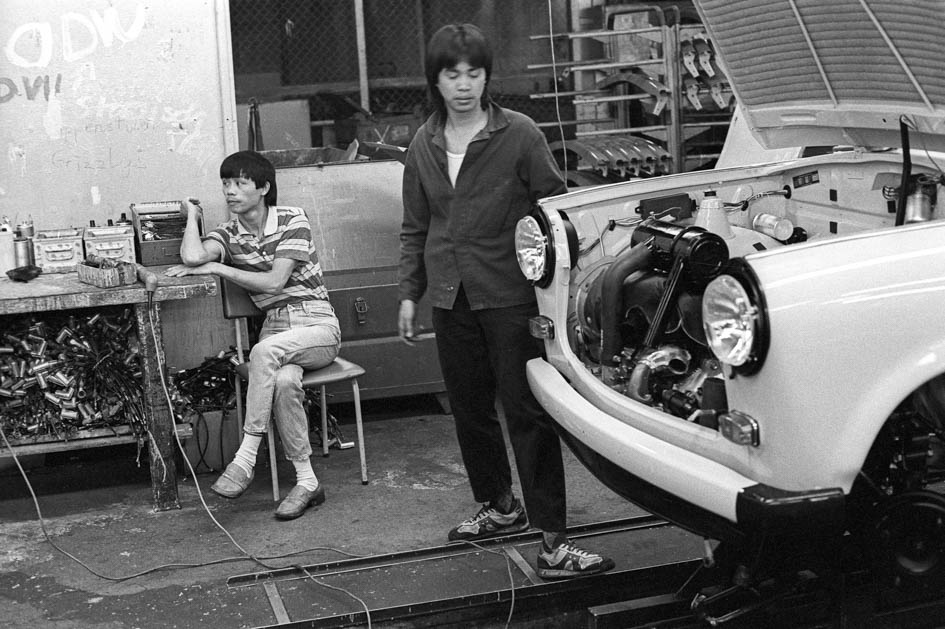
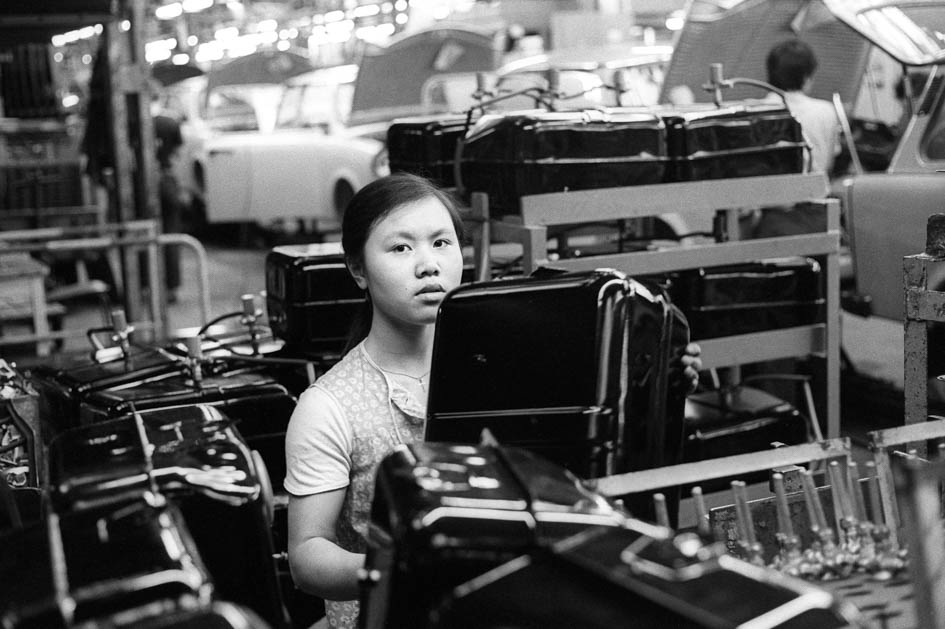
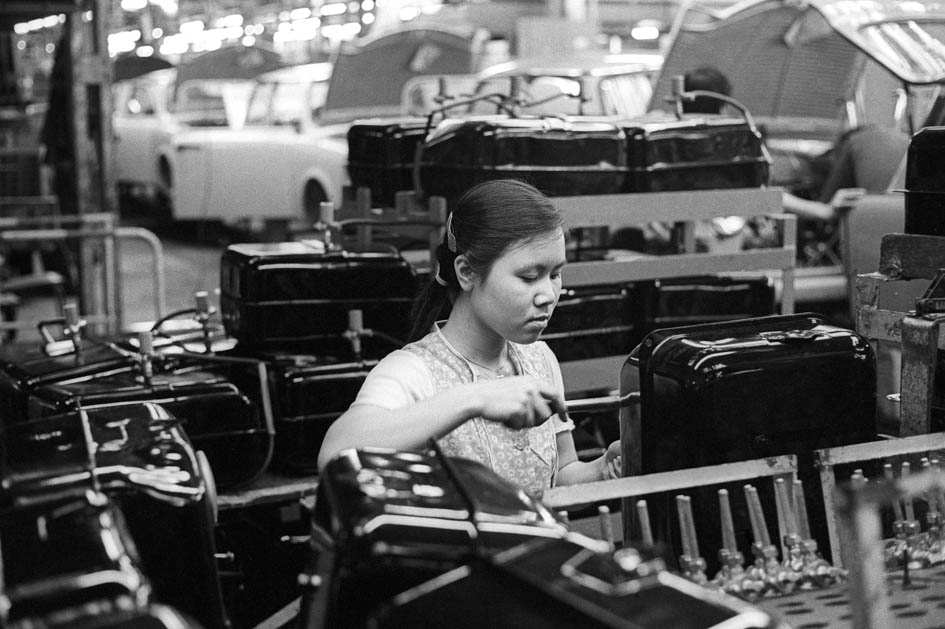
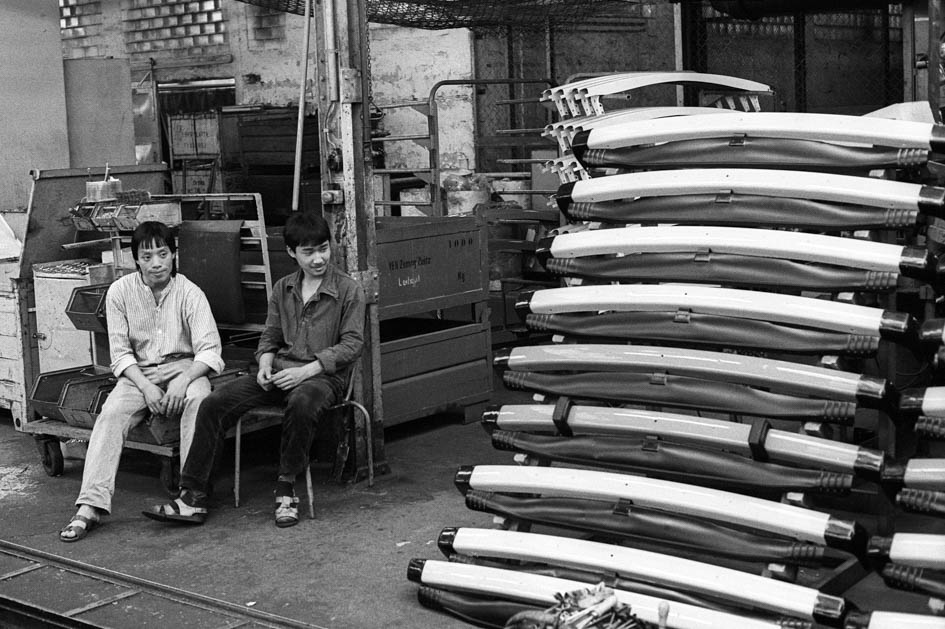
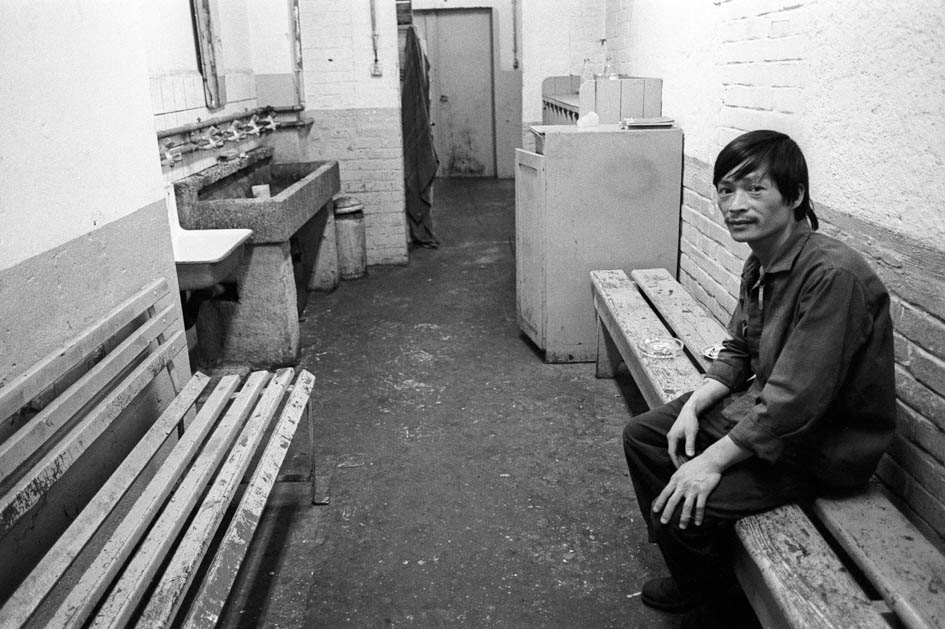
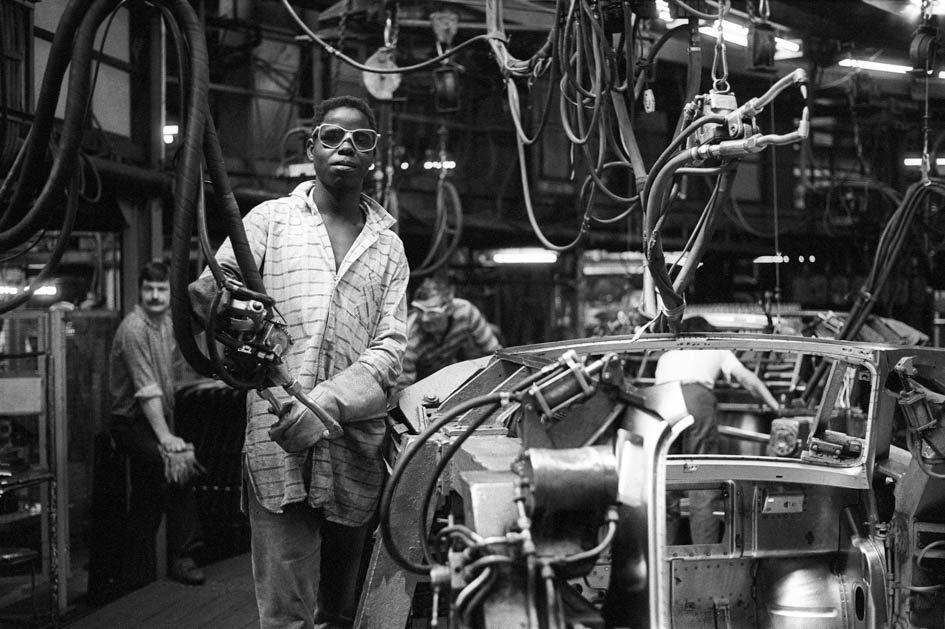
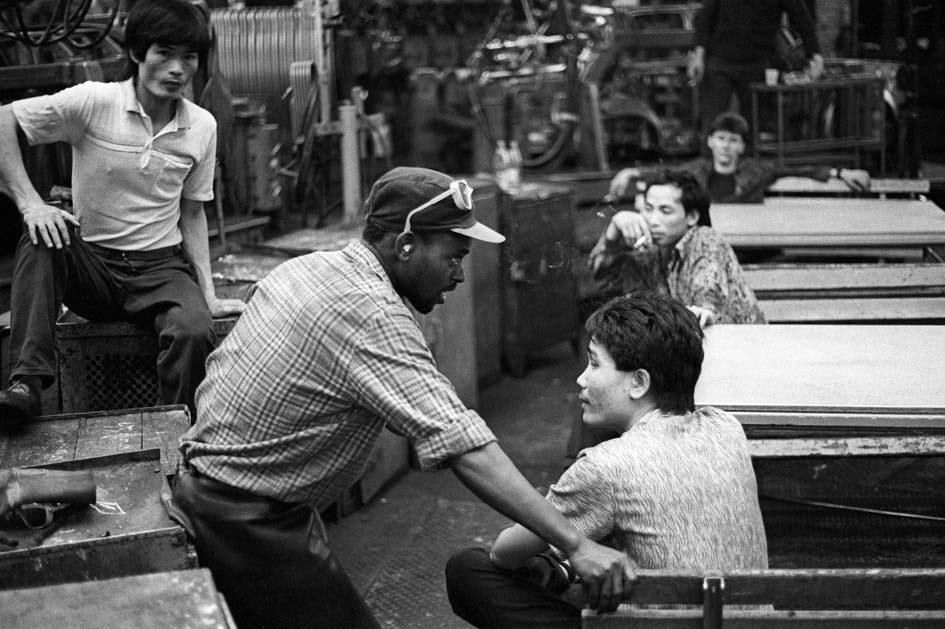
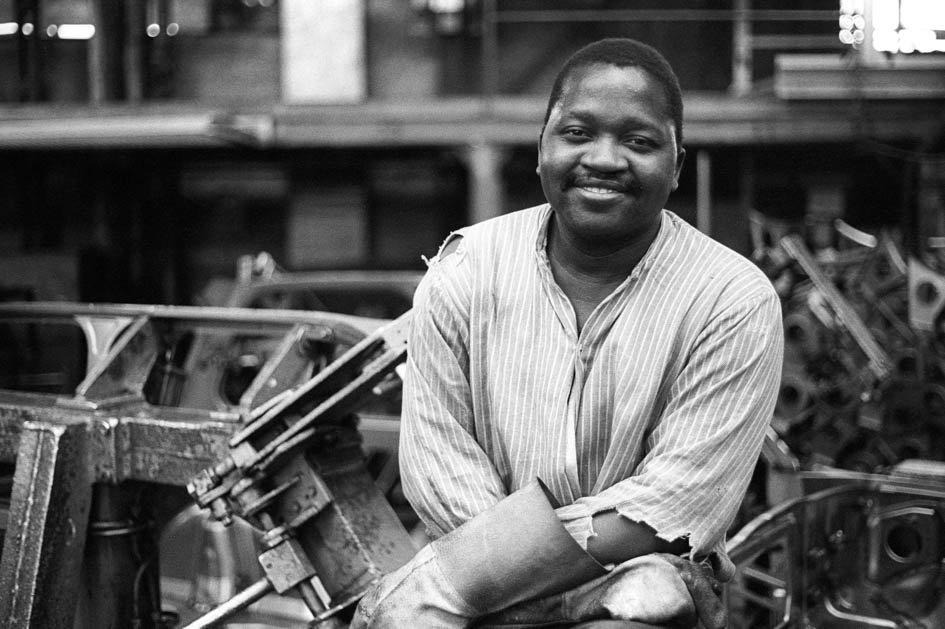
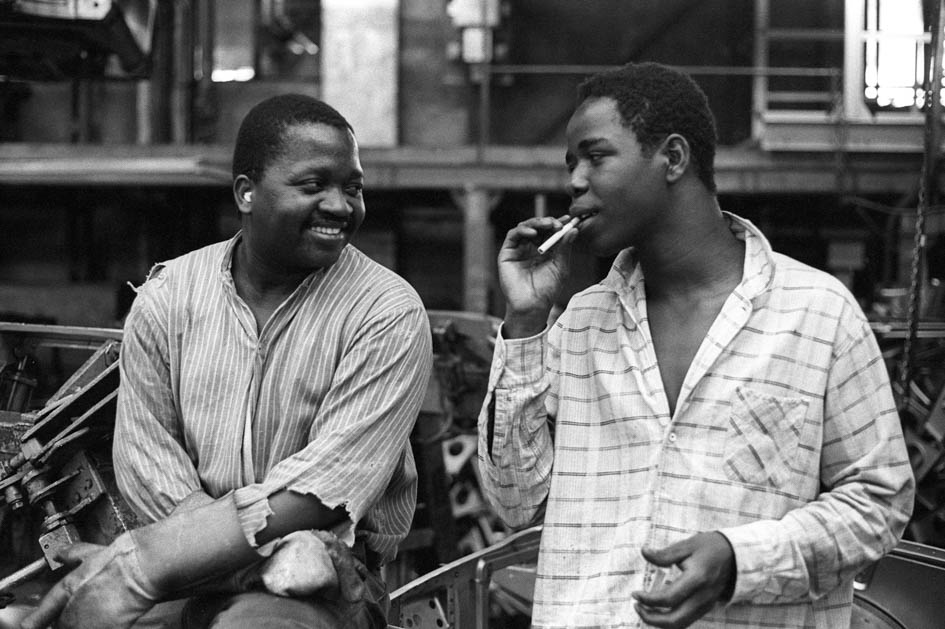
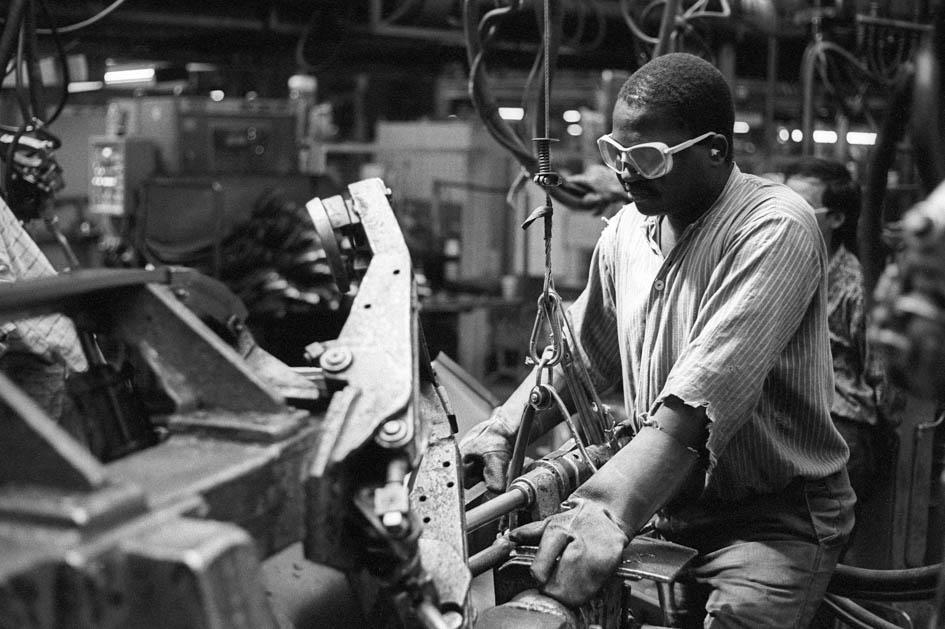
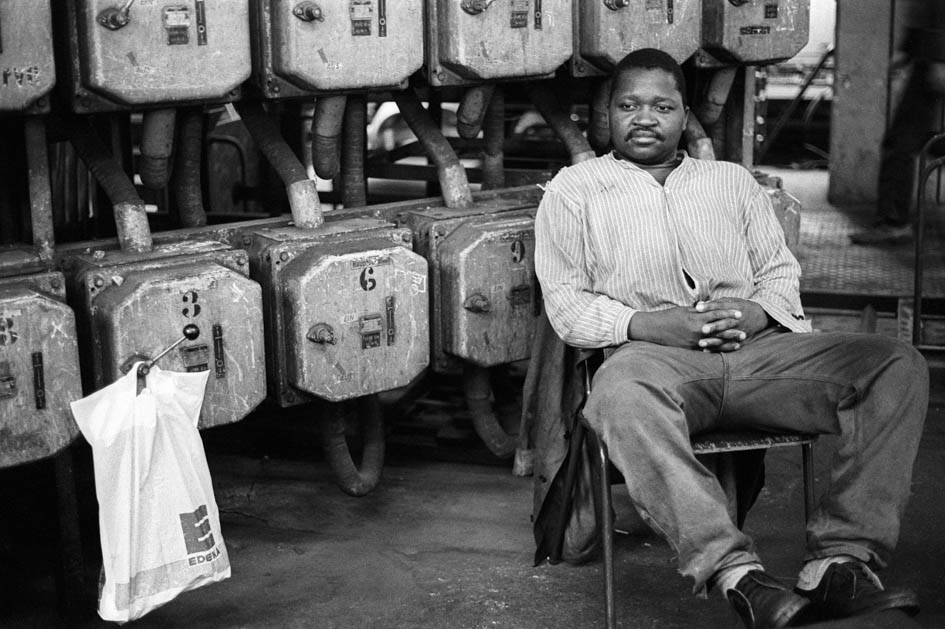
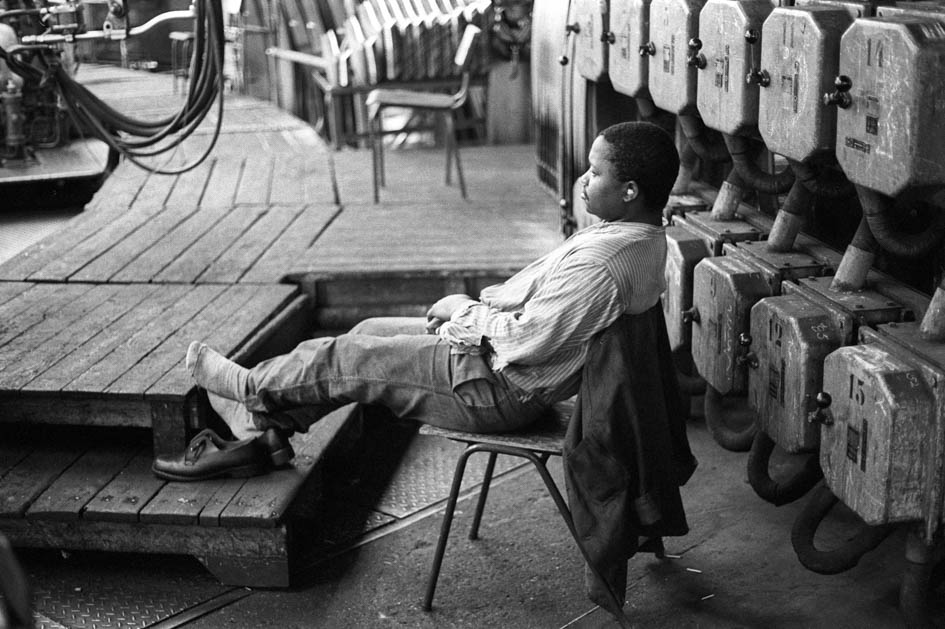
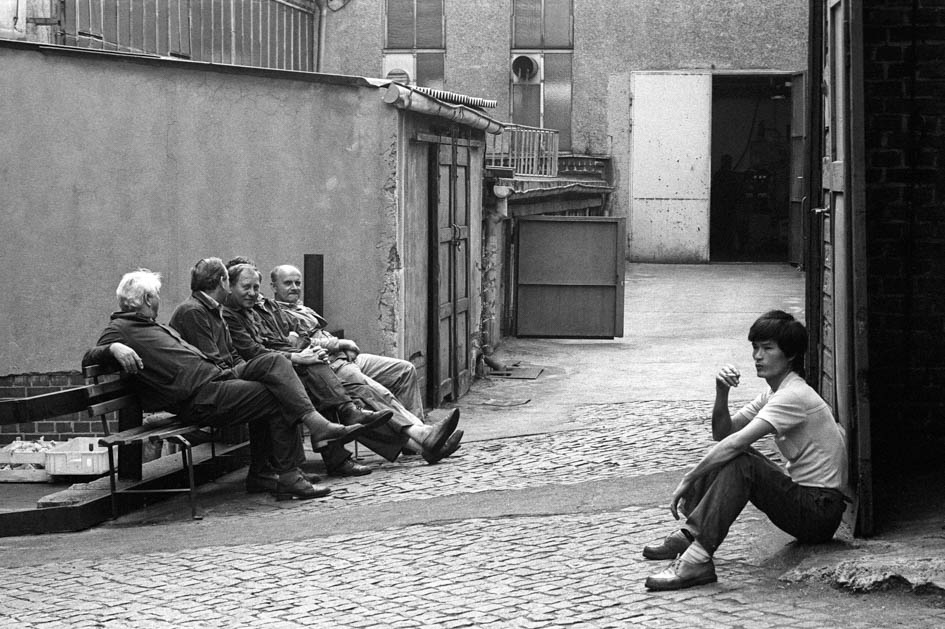
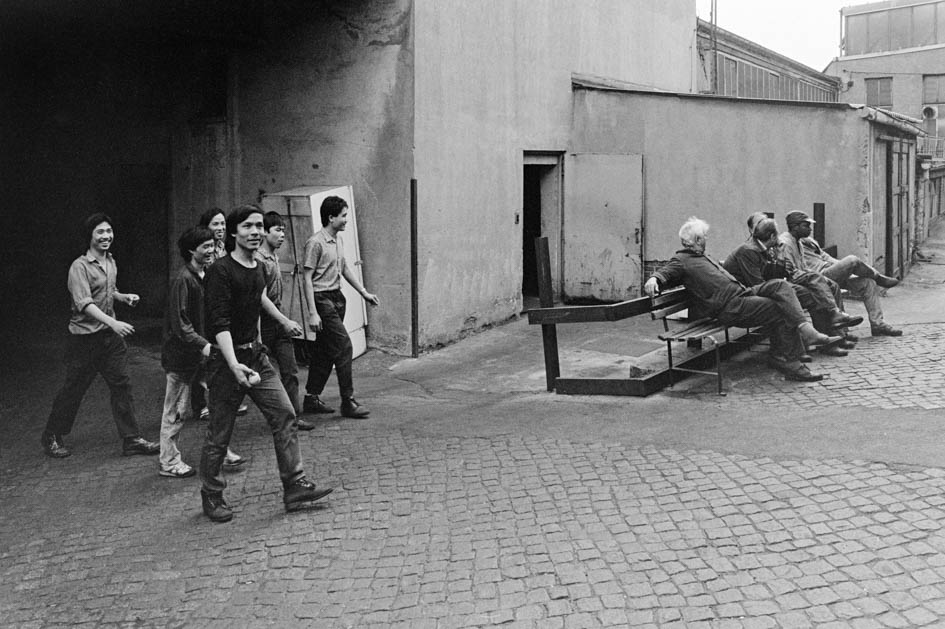

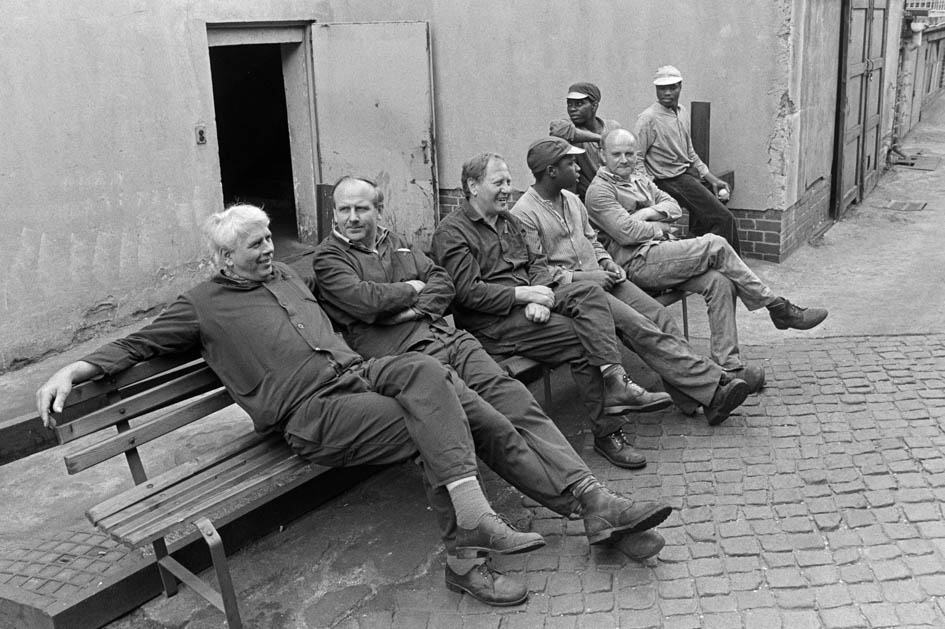
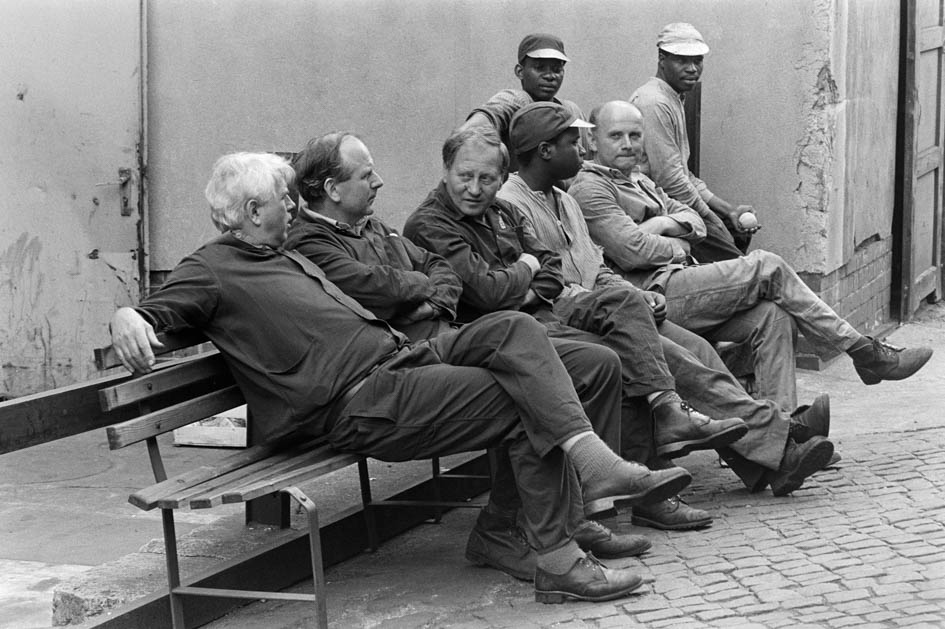
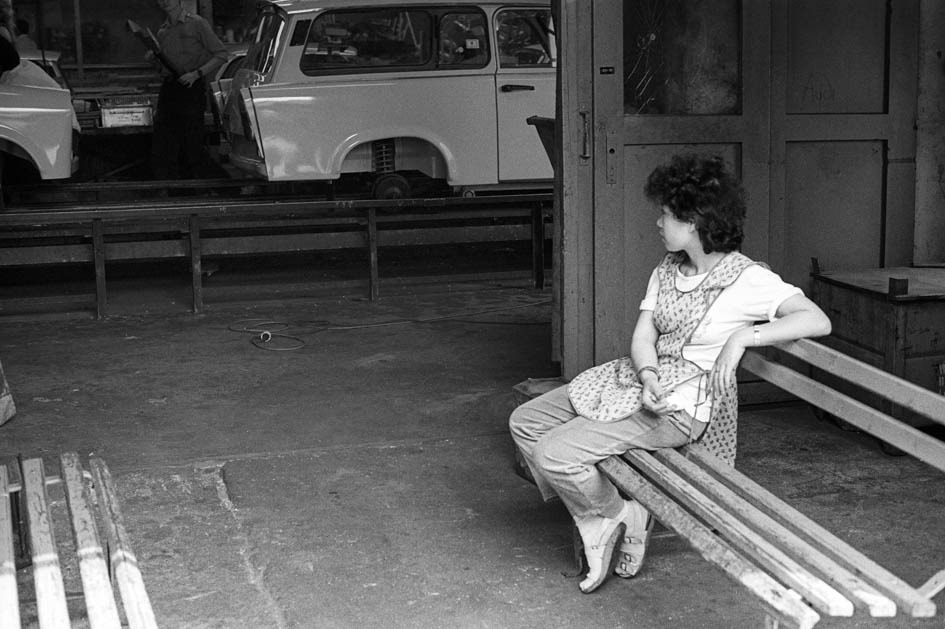
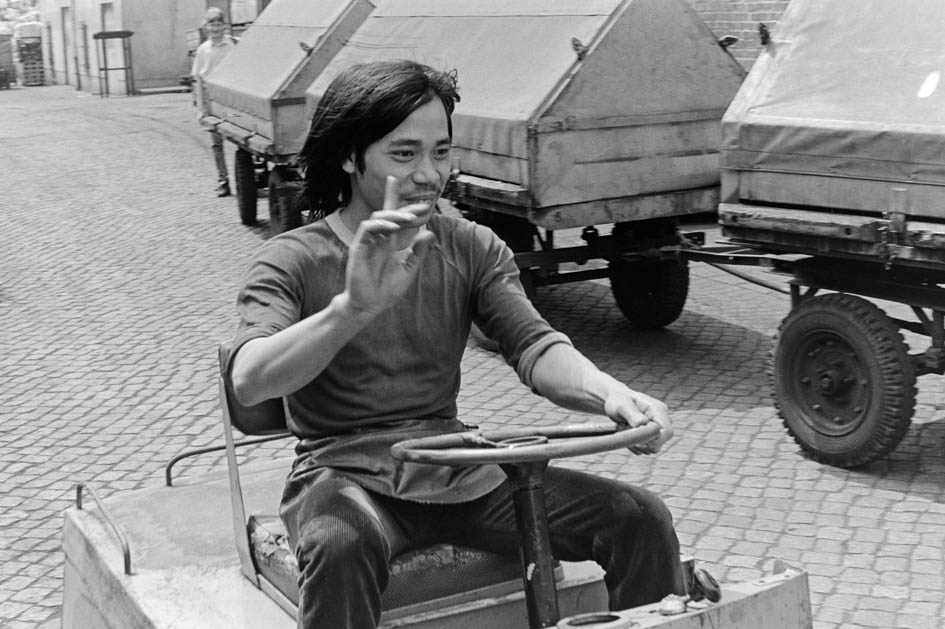
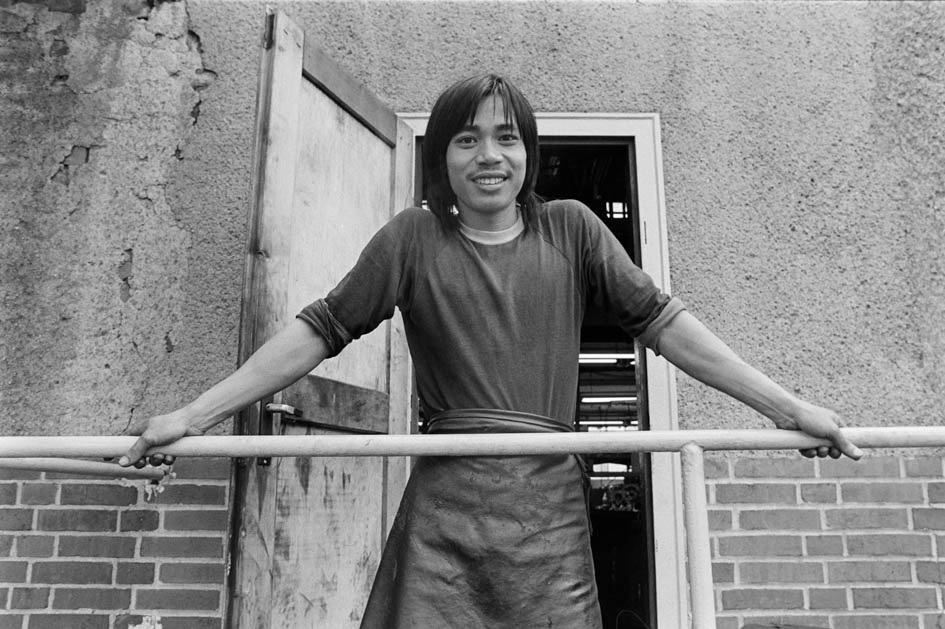
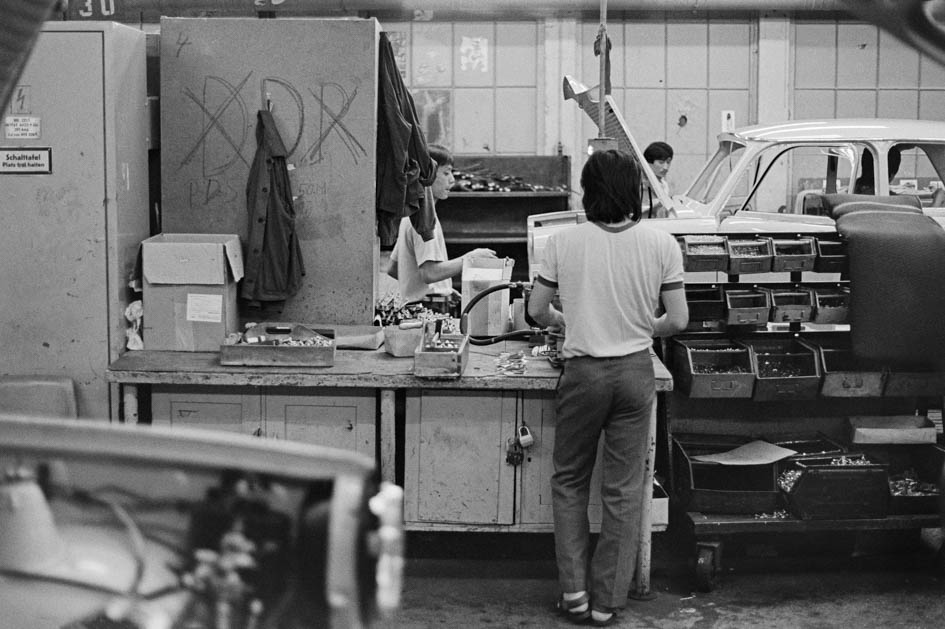
Impressions of the Sachsenring satellite plant in 1990 ©️ Erik-Jan Ouwerkerk
Many thanks to
August Horch Museum Zwickau, Domchor St. Marien Zwickau, Feminist Choir Zwickau, FSV Zwickau and above all to all the contemporary witnesses who shared their stories with us backstage and on stage
Supported by - FEDERAL CULTURAL FOUNDATION
Cast
Concept and direction - Jens Vilela Neumann Choreography - Gabriel Panaibra Canda (Mos)
Dramaturgy - Kornelius Luther
Stage and costumes - Annabel von Berlichingen
Musical direction - GMD Leo Siberski, Karl Joseph Eckel
Assistant directors - Ulrike Berger, Elisa Ender, Romy Knieriem
Zwickauer Bürger:innenbühne - Olivia Brückner, Sophie Brückner, Angelika Felgentreu, Lilli Heyn, Ida Heyne, Michaela Jutz, Annemarie Kelpe, Isabel Leßmann, Abdulsamad Mahmood, Nguyễn Minh Hằng, Daniel Schiffer, Luise Schmidt, Sara Thiel, Jelena Wardezki
Dance - Duc Le Anh, José Jalane Acting - Julia Hell, Andrea Klem, Daniel Koch
Music - Leo Siberski (trumpet, piano, electronics), Philipp Wiechert (guitar), Matthias Kramp (bass), Nils Fahlke (drums)
Vocals - Karl Joseph Eckel, Sabrina Liedemann, Pedro Osório Mondlane, Helene Luise Stiller
Witnesses - José Alfredo Cossa, Joaquim João Teixeira, Abibo Mendes, Nguyễn Quang Chinh and many more Research: Christoph Wunnicke
From the show:
We are the city, we are the time,
we are the heard and the unheard voices,
we are yesterday and tomorrow.
What future will we give birth to?
Who wrote the history that forms the foundation of today?
And what story will be told tomorrow about today?
We are the dance of the forgotten.
Will we repeat our yesterday tomorrow?
Because we have forgotten, because we say:
We didn't know.
Or we know, but we don't care,
because it's easier not to listen,
to take no responsibility, to change nothing,
to do nothing. Nothing.
Citizens! Why do we again lack the courage to stand up for our fellow citizens?
Why do we forget how strong we can be when we stand together?
The principle has been the same for 150 years: we differentiate between WE and THEY!
As long as THEY bring ‘US’ an economic benefit, remain invisible and without a say, THEY are more or less tolerated.
Press:
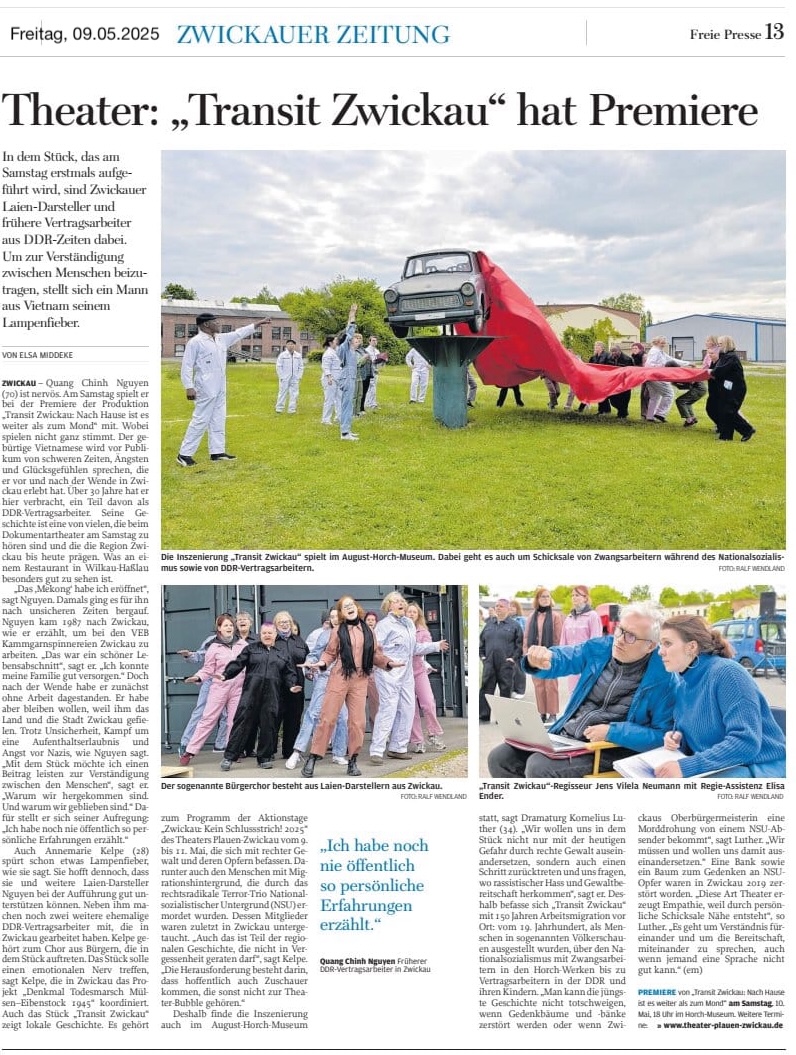

FINANCED BY

WITH FRIENDLY SUPPORT OF
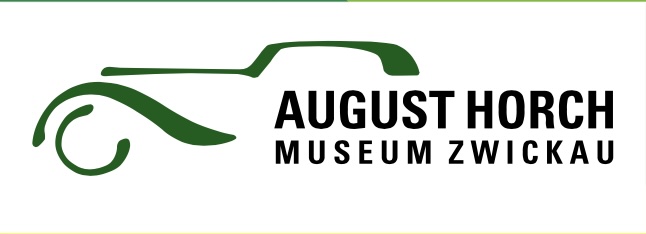
PRODUCED BY TPZ IN COLLABORATION WITH PG:
